As the climate crisis accelerates and marine ecosystems reach tipping points, the world is increasingly turning toward the Blue Economy—a regenerative, ocean-centered model that aligns economic growth with ecological restoration. While the concept traditionally centers on sectors like fisheries, marine energy, and biotechnology, a powerful yet often underappreciated ally is emerging: the hospitality industry.
Coastal hotels, resorts, and lodges are uniquely positioned at the interface between people and planet. Drawing millions of travelers to fragile marine environments each year, they have both a significant environmental footprint and an unprecedented opportunity for influence. In recent years, a vanguard of luxury eco-resorts and responsible hospitality brands have reimagined tourism—not as a threat to the oceans, but as a driving force behind marine conservation, community engagement, and ecological regeneration.
From coral reef restoration in the Maldives to no-take marine zones in Cambodia, the most forward-thinking resorts are integrating conservation into their core identity. They are investing in low-impact infrastructure, collaborating with scientists and NGOs, and transforming guests into stewards of the sea.
This article explores 10 standout resorts and hotels around the globe that are redefining what it means to be sustainable in the hospitality industry. These aren’t just beautiful places to stay—they are living laboratories of Blue Economy in action.
1. Misool Eco Resort, Indonesia
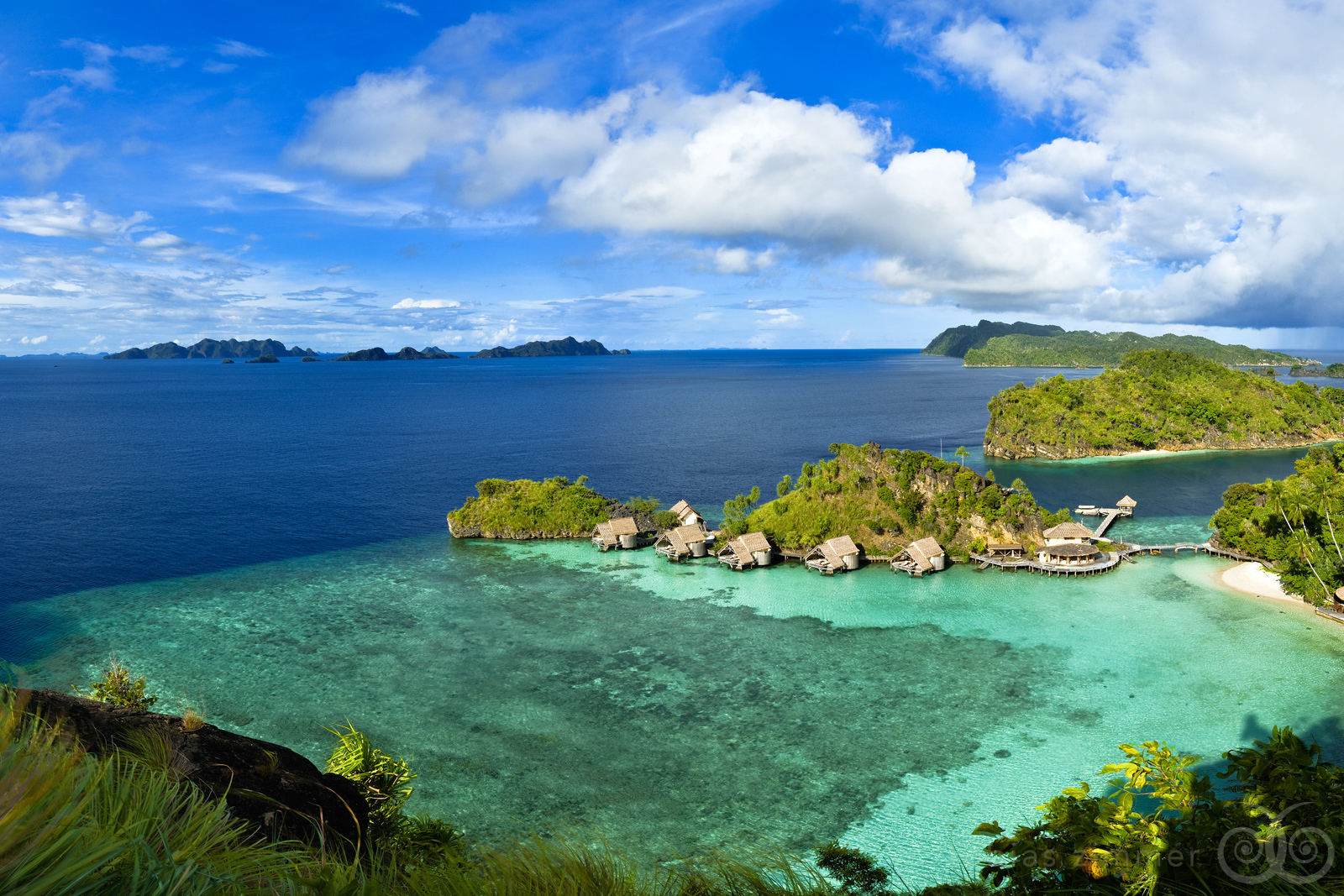
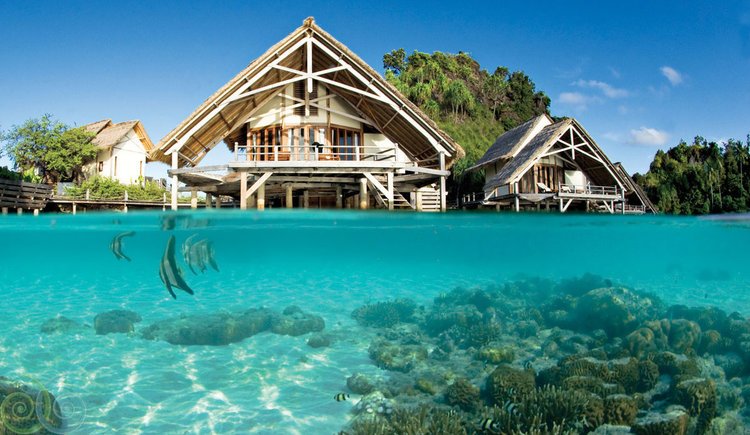
Overview:
Misool Eco Resort is a private island resort and conservation center located in remote southern Raja Ampat, Indonesia. Nestled in an archipelago of uninhabited islands, it offers exclusive adventure holidays and transformative experiences in pristine nature .
Location:
Raja Ampat, Indonesia
Eco-Features:
-
Accommodates a maximum of 40 guests with a staff-to-guest ratio of 4:1
-
Constructed using reclaimed tropical hardwoods and local materials, ensuring minimal environmental impact.
-
Operates on a zero-waste policy, with initiatives like composting and recycling.
-
Powered by solar energy and implements comprehensive waste management systems.
-
Features Balinese-style open-air bathrooms and handcrafted furniture, enhancing natural ventilation and reducing energy consumption.
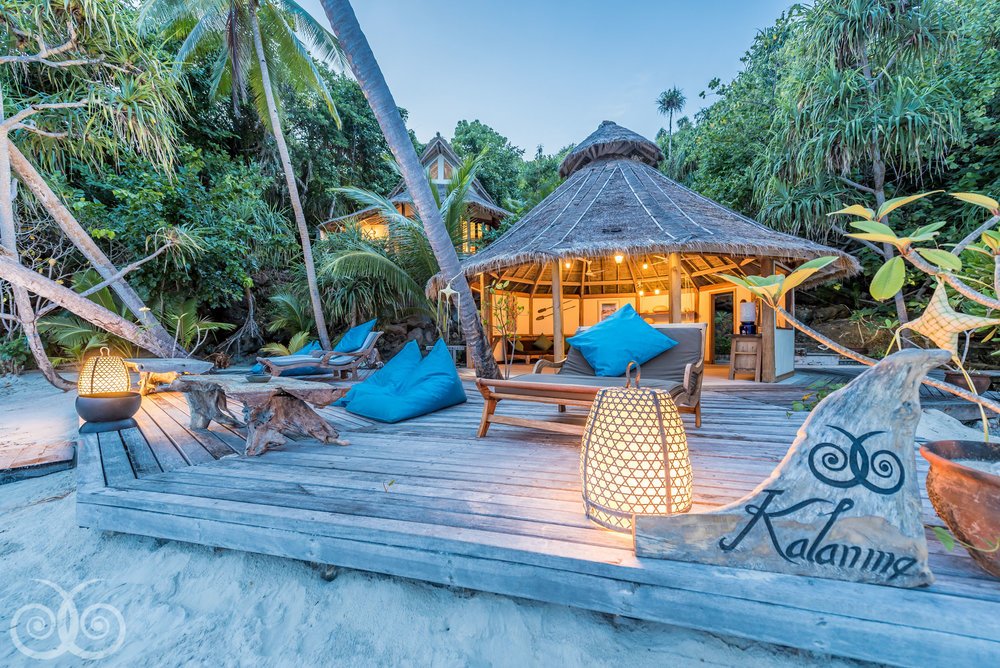
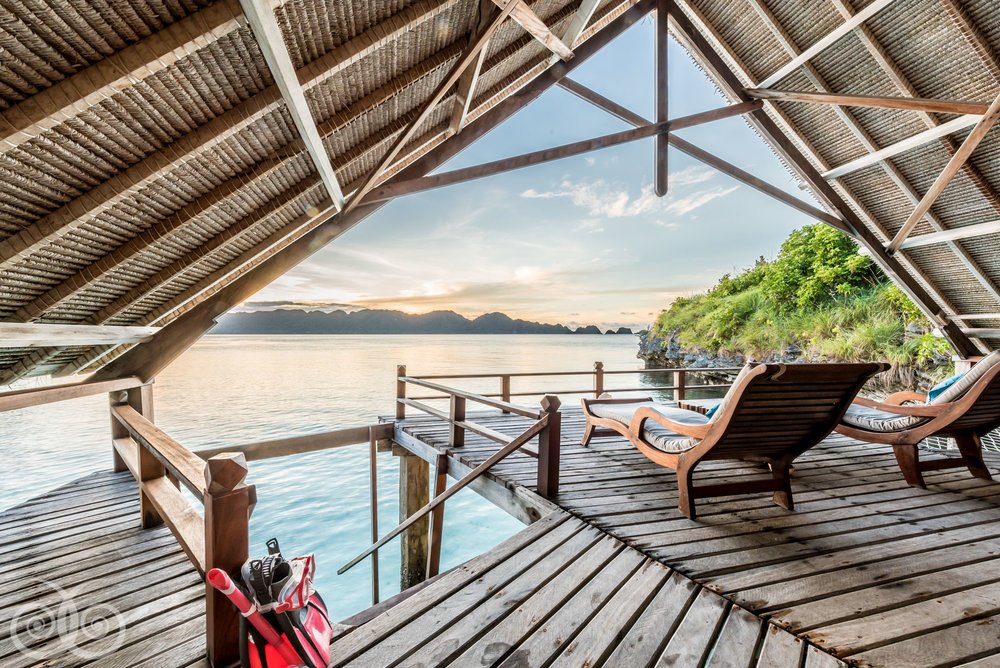
Ocean Conservation Initiatives:
-
Established a 300,000-acre Marine Protected Area (MPA) with a no-take zone
-
Partners with local communities for reef restoration and marine species monitoring
-
Guests can participate in citizen science programs, including manta ray identification.
-
Collaborates with the Misool Foundation to manage conservation programs combining marine governance, waste management, community empowerment, and species conservation.
Nightly Rate: Packages for 7, 9, or 12-night stays are available; rates vary depending on the package and season .
Website: misool.info
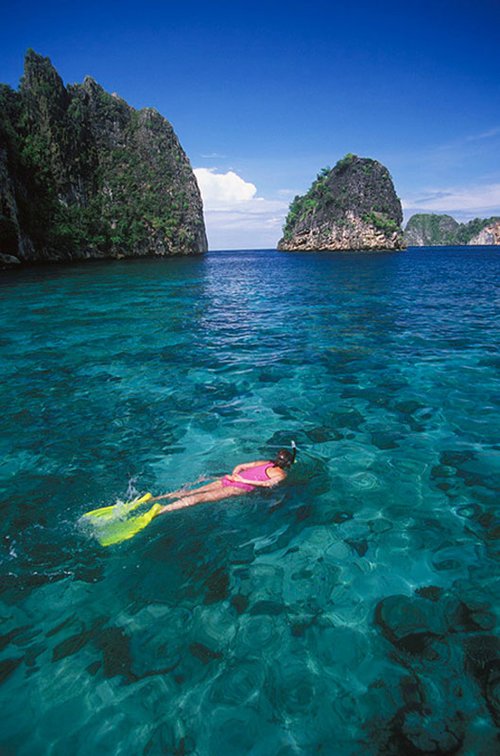
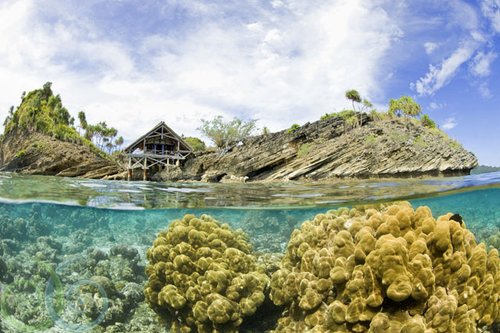
2. Lapa Rios Lodge – Osa Peninsula, Costa Rica
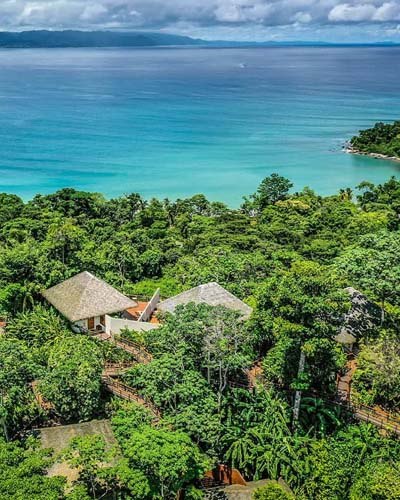
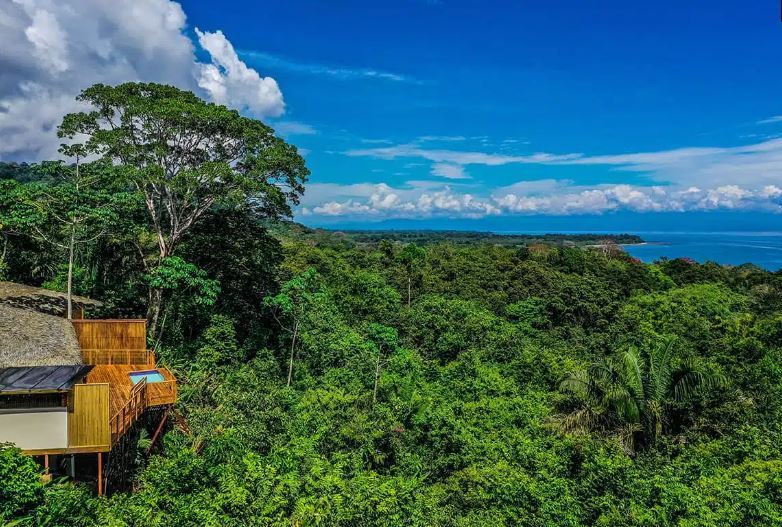
Overview:
Lapa Rios Lodge is a pioneering eco-lodge situated within a 1,000-acre private nature reserve in Costa Rica's Osa Peninsula, one of the most biodiverse regions on Earth. The lodge offers guests an immersive rainforest experience while emphasizing environmental education and conservation.
Eco-Features:
-
Constructed using sustainable materials with minimal environmental impact.
-
Operates on renewable energy sources and implements comprehensive recycling programs.
-
Provides locally sourced, organic cuisine to reduce carbon footprint.
-
Maintains a 1,000-acre private nature reserve to protect biodiversity.
Ocean Conservation Initiatives:
-
Collaborates with local organizations to protect nearby marine ecosystems, including mangroves and coral reefs.
-
Offers educational programs on marine biodiversity and conservation practices.
-
Engages guests in beach clean-up activities and wildlife monitoring projects.
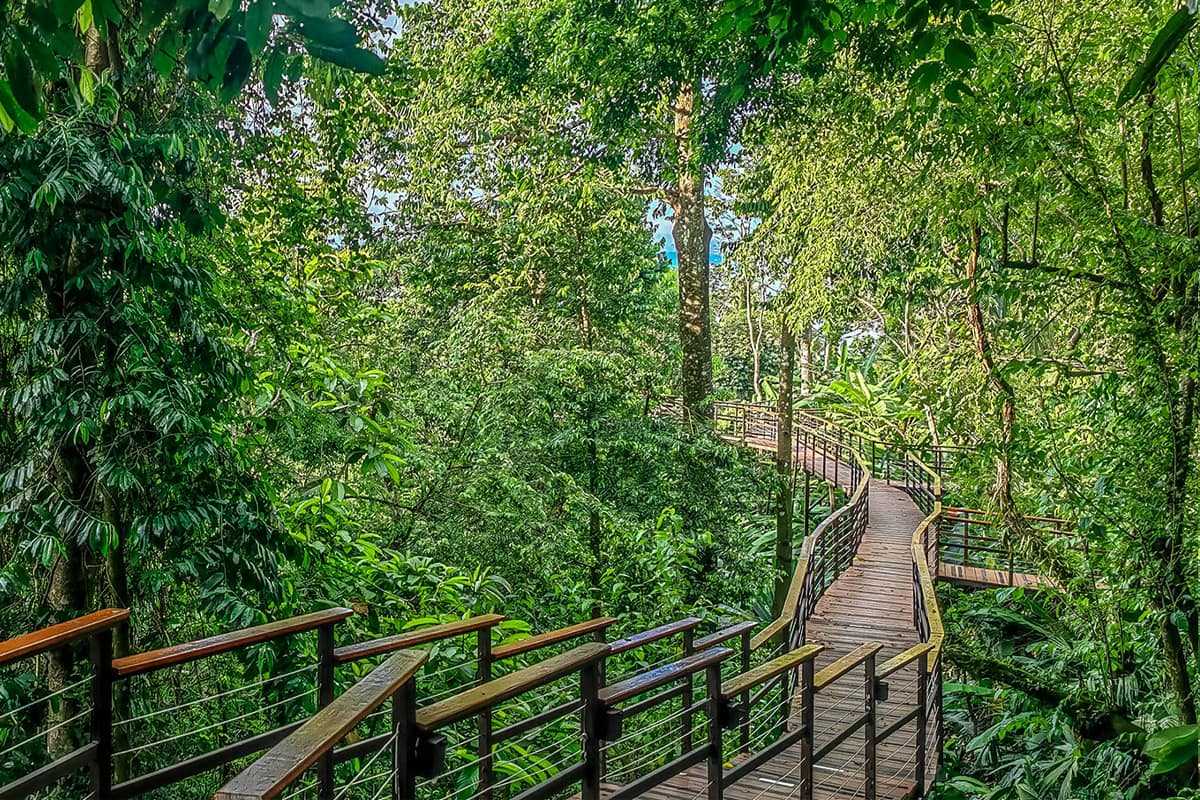
Nightly Rate: Rates start from approximately $1,000 per night, depending on the season and accommodation type.
Website: www.laparios.com
3. Jean-Michel Cousteau Resort – Savusavu, Fiji
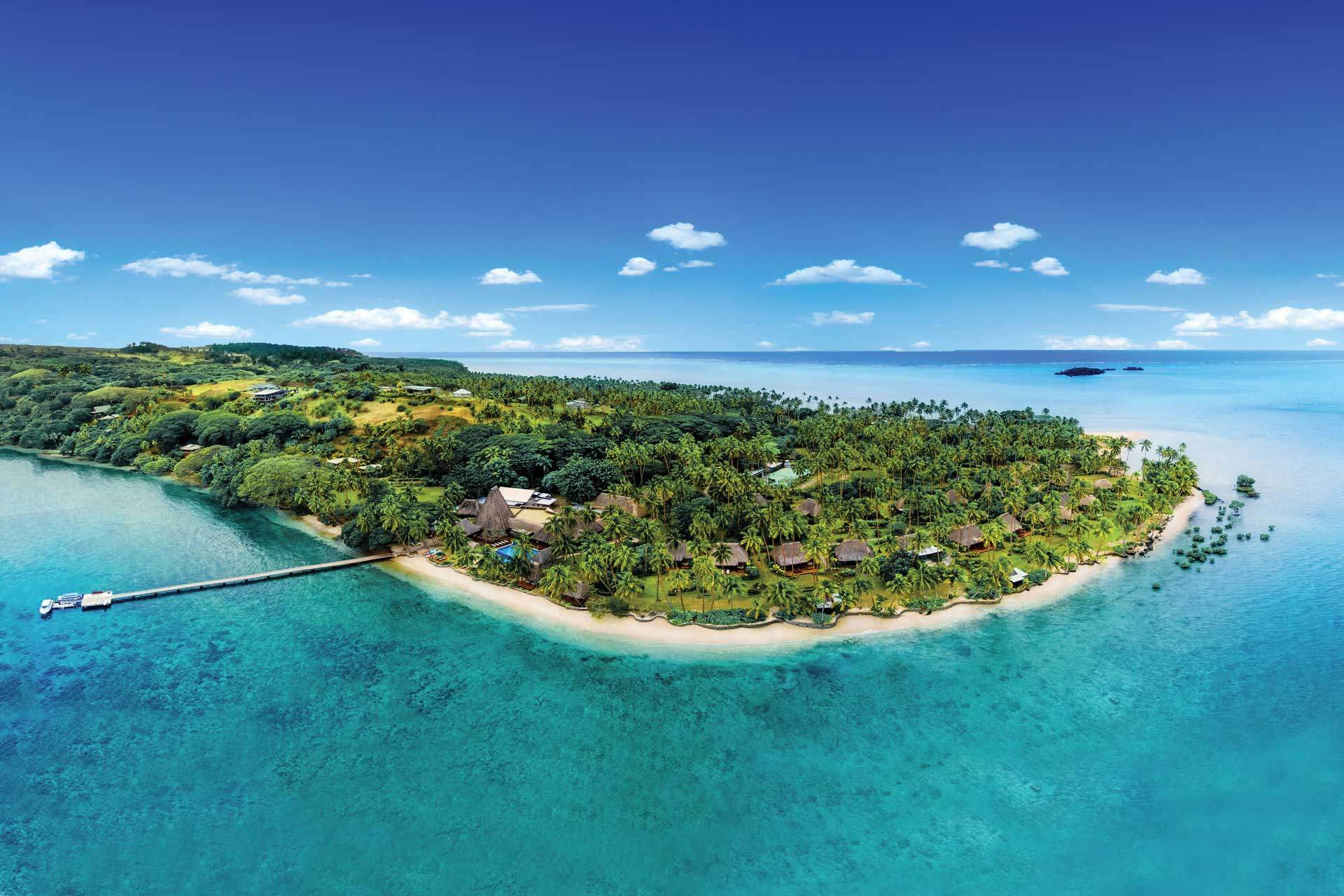

Overview:
Founded by oceanographer Jean-Michel Cousteau, this resort is renowned for its dedication to marine conservation and environmental education. Located on the island of Vanua Levu, it offers luxury accommodations alongside opportunities to explore Fiji's rich marine life.
Location:
Savusavu, Vanua Levu, Fiji
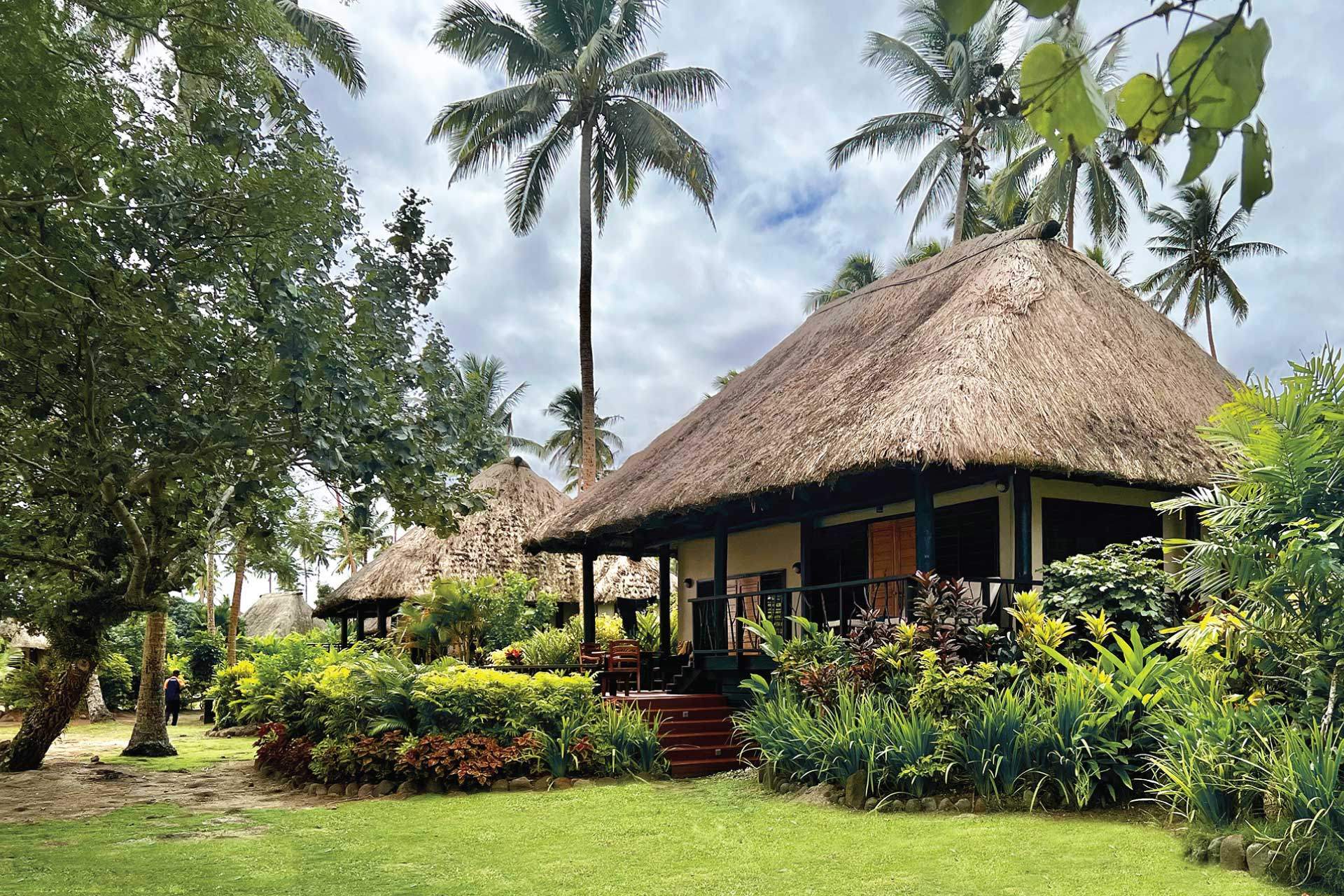
Eco-Features:
-
Utilizes solar energy and implements energy-efficient technologies.
-
Employs sustainable building materials and practices.
-
Operates an organic garden supplying produce for the resort's restaurant.
Ocean Conservation Initiatives:
-
Hosts a full-time marine biologist to lead educational programs and guided snorkeling trips.
-
Partners with Reef Explorer Fiji and Ocean Ventures for marine research and coral rehabilitation.
-
Supports coral reef restoration projects and marine protected areas.
-
Engages guests in citizen science initiatives, such as reef monitoring and data collection.
-
Educational programs for guests and local school children through the Cousteau Ambassadors Program. More: https://www.fijiresort.com/environmental-initiatives
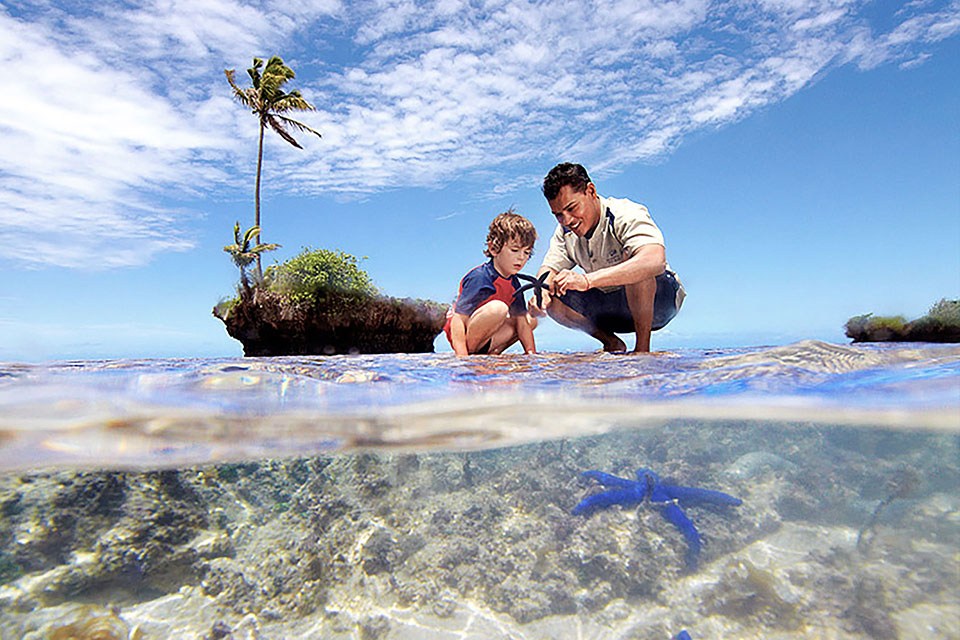
Unveil marine wonders with Savusavu's marine experts
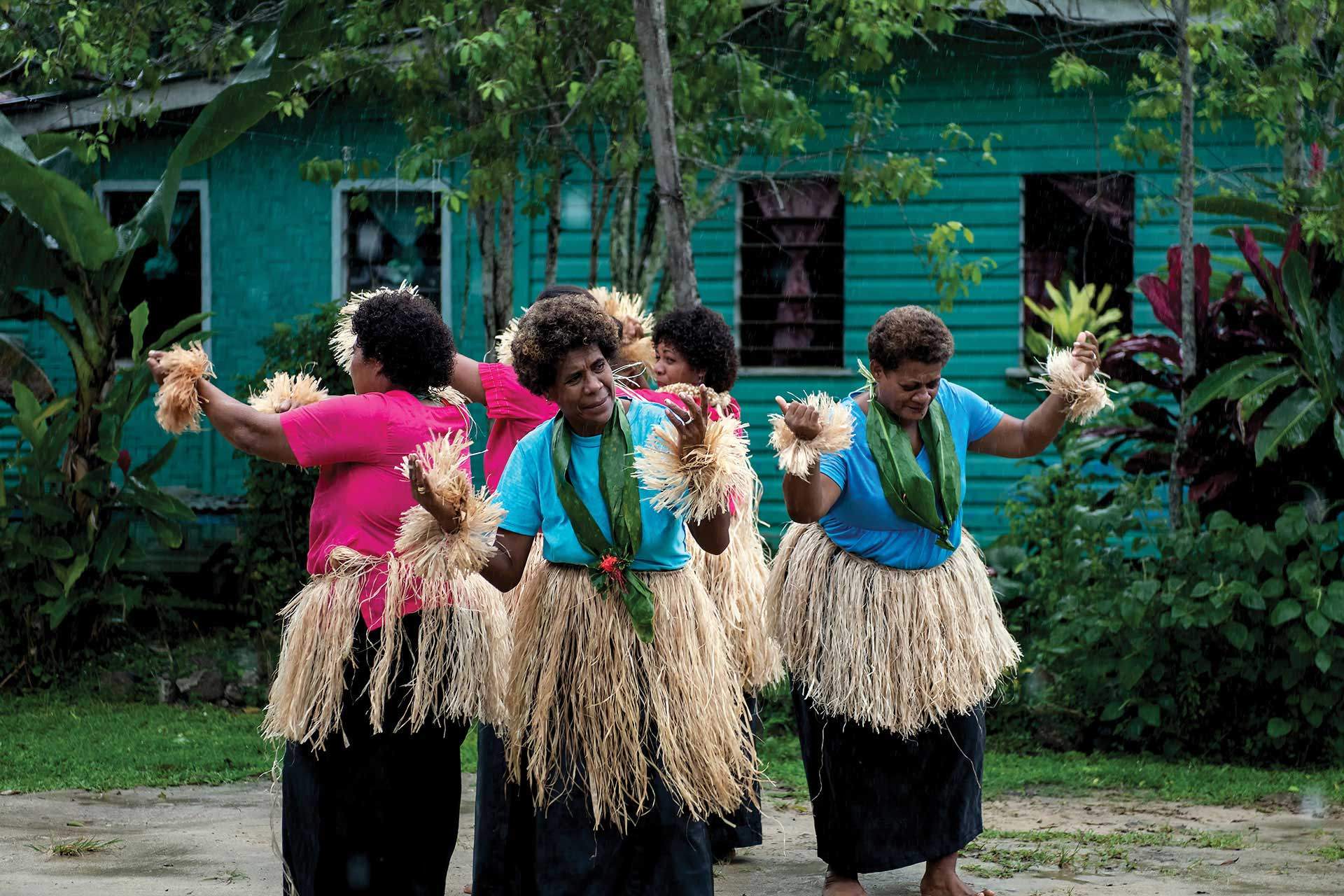
Guardians of Fiji's cultural legacyRespected keepers of Fiji's cultural legacy: In homage to iTaukei and Fiji culture, tradition is at the heart of Jean-Michel Cousteau Resort, Fiji. Located in the remote Pacific, this eco-resort embraces a profound commitment to preserving cultural heritage and natural beauty.
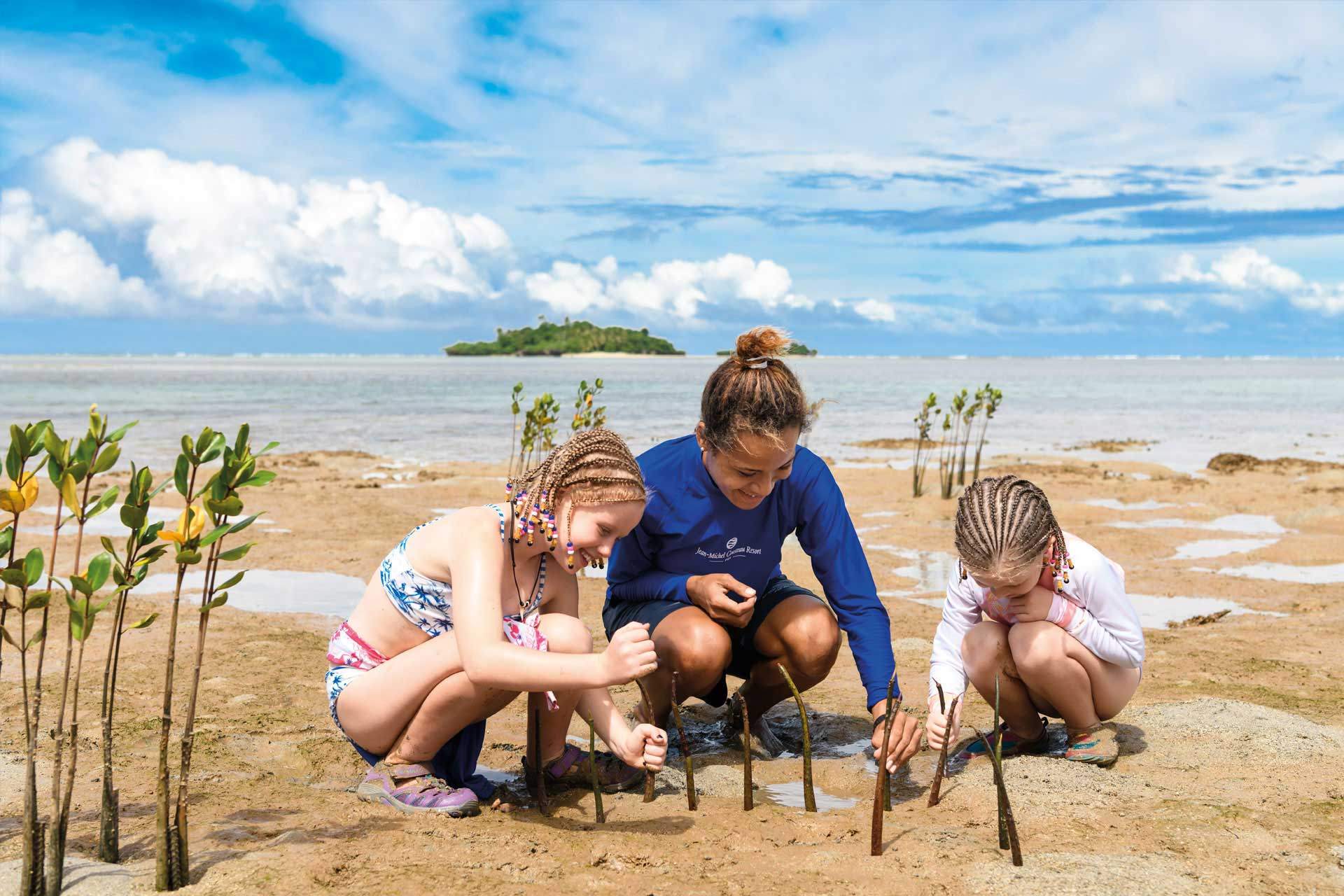
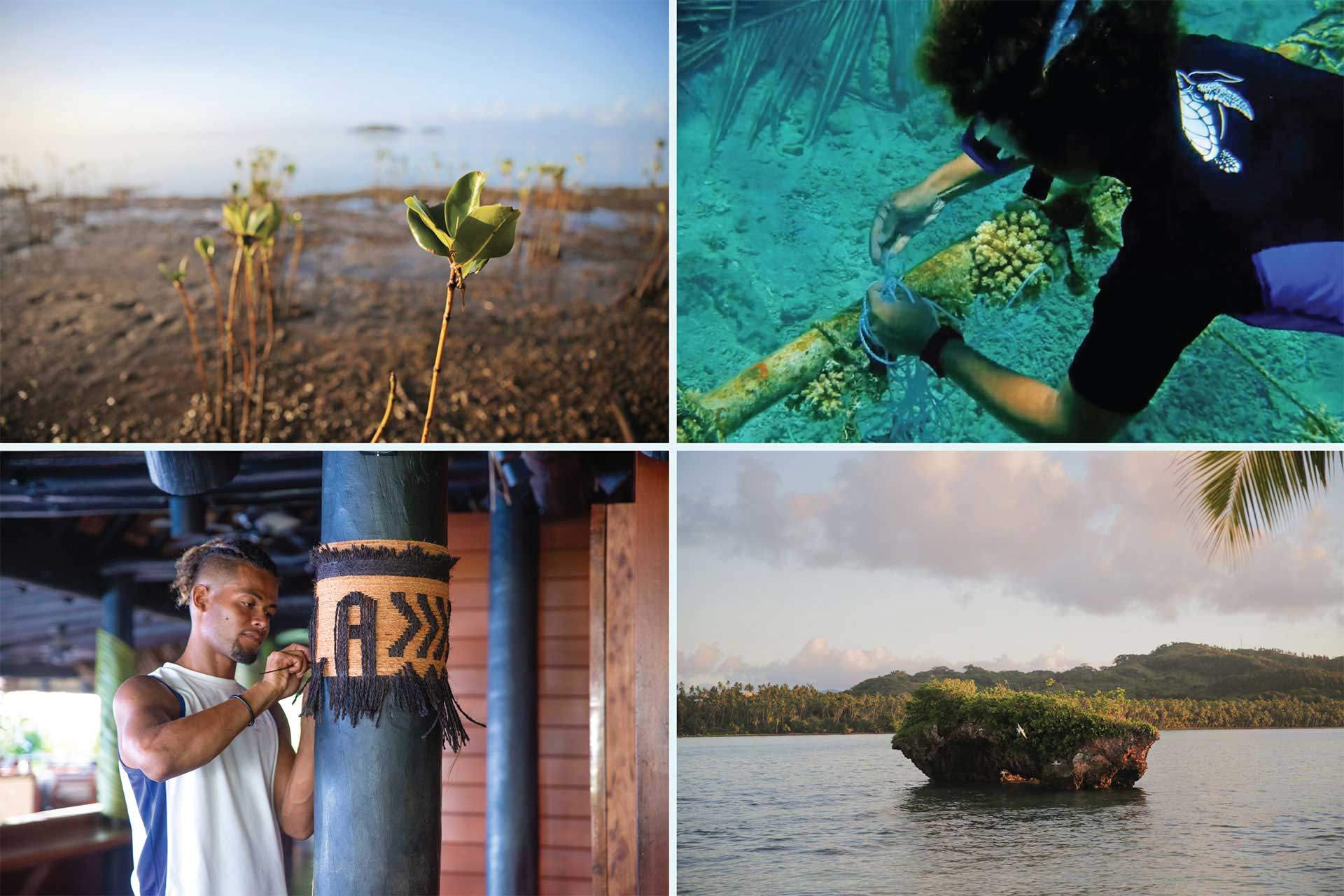
Preserving fiji's natural beauty with sustainable luxury
Nightly Rate: Rates start from approximately $1,000 per night, varying by season and room type.
Website: www.fijiresort.com
4. Chumbe Island Coral Park – Zanzibar, Tanzania
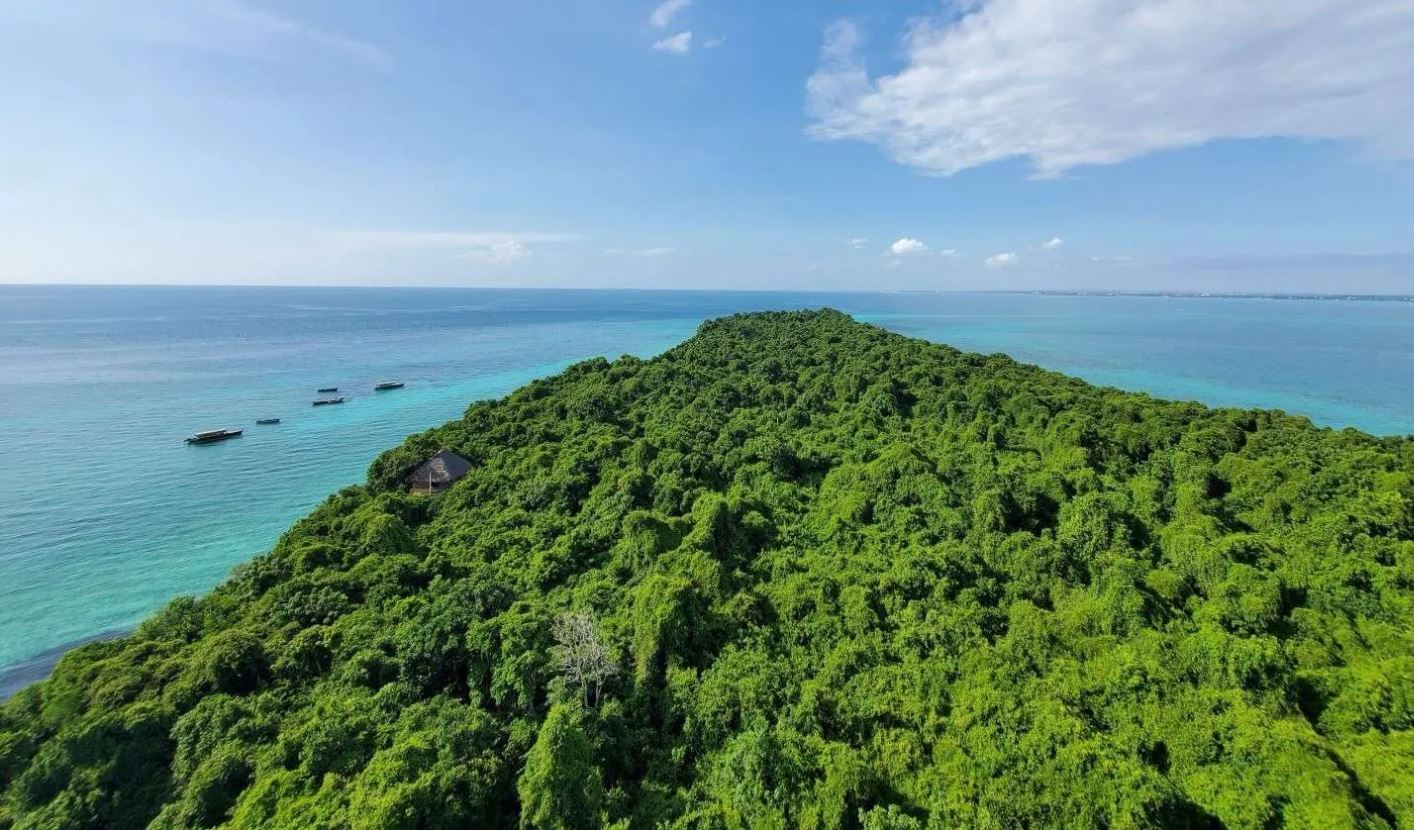
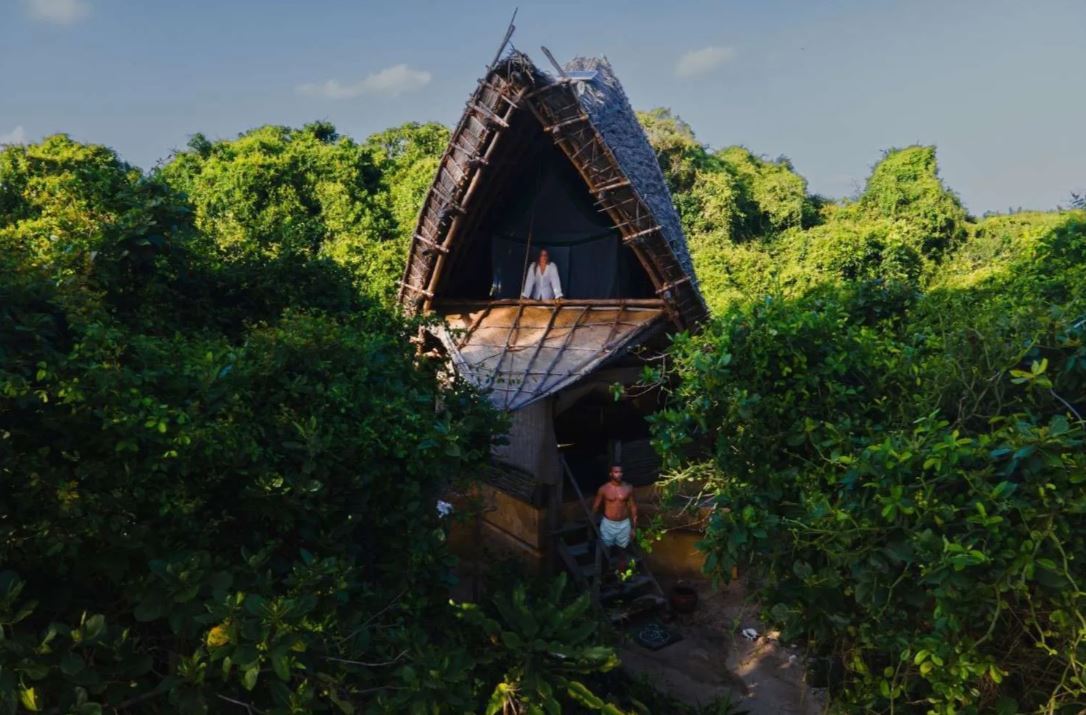
Experience Nature's Paradise in their Zero Impact Eco-Bungalows
Overview:
Chumbe Island Coral Park is a private nature reserve encompassing a fully protected coral reef sanctuary and forest reserve. The eco-lodge offers a unique opportunity to experience pristine marine and terrestrial ecosystems.
Location:
Off the coast of Unguja (Zanzibar), Tanzania
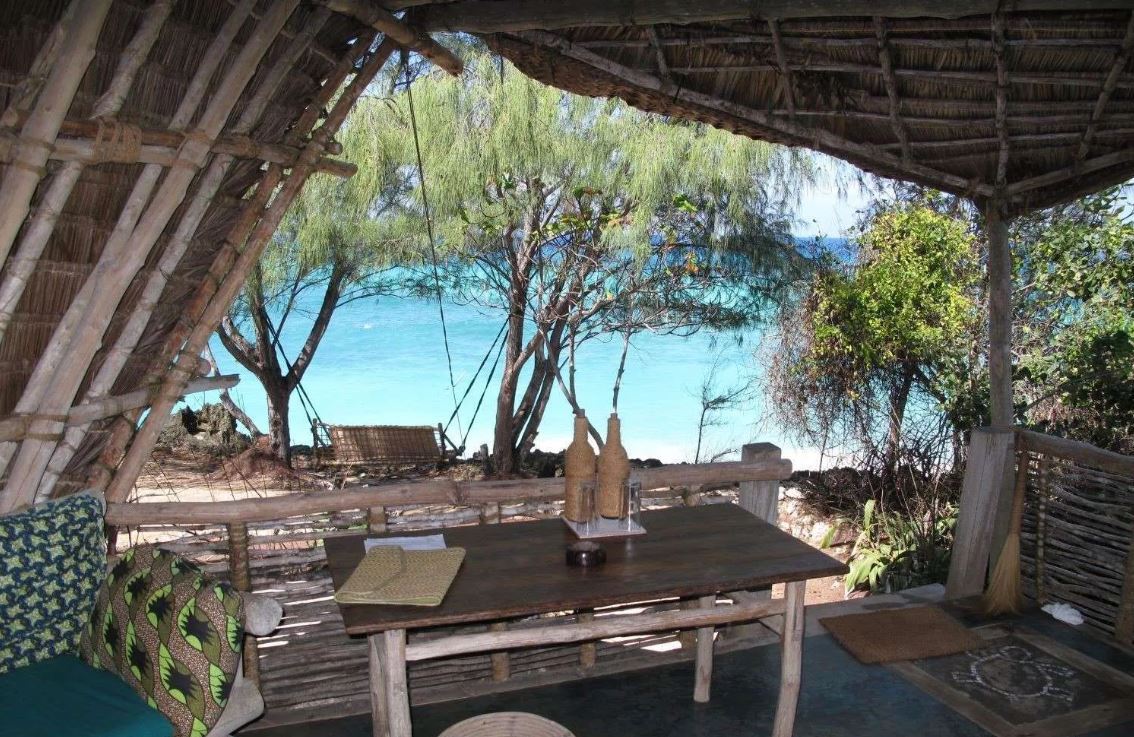
Eco-Features:
-
Operates entirely on solar power and rainwater harvesting systems.
-
Utilizes composting toilets and greywater filtration to minimize environmental impact.
-
Constructed with eco-friendly materials and designed to blend with the natural environment.
-
Non-toxic materials and natural ventilation eliminate the need for air conditioning.
Ocean Conservation Initiatives:
-
Manages one of the first privately established marine protected areas in the world.
-
Conducts environmental education programs for local communities and schools.
-
Engages in ongoing research and monitoring of coral reef health and biodiversity.
-
Established and enforces Tanzania’s first no-take marine reserve, home to over 400 fish species and 200 coral types.
-
Partners with the Institute of Marine Sciences (University of Dar es Salaam) and local authorities to monitor reef health and educate fishers.
-
Conducts marine biology training for local teachers and students. More: https://chumbeisland.com/conservation
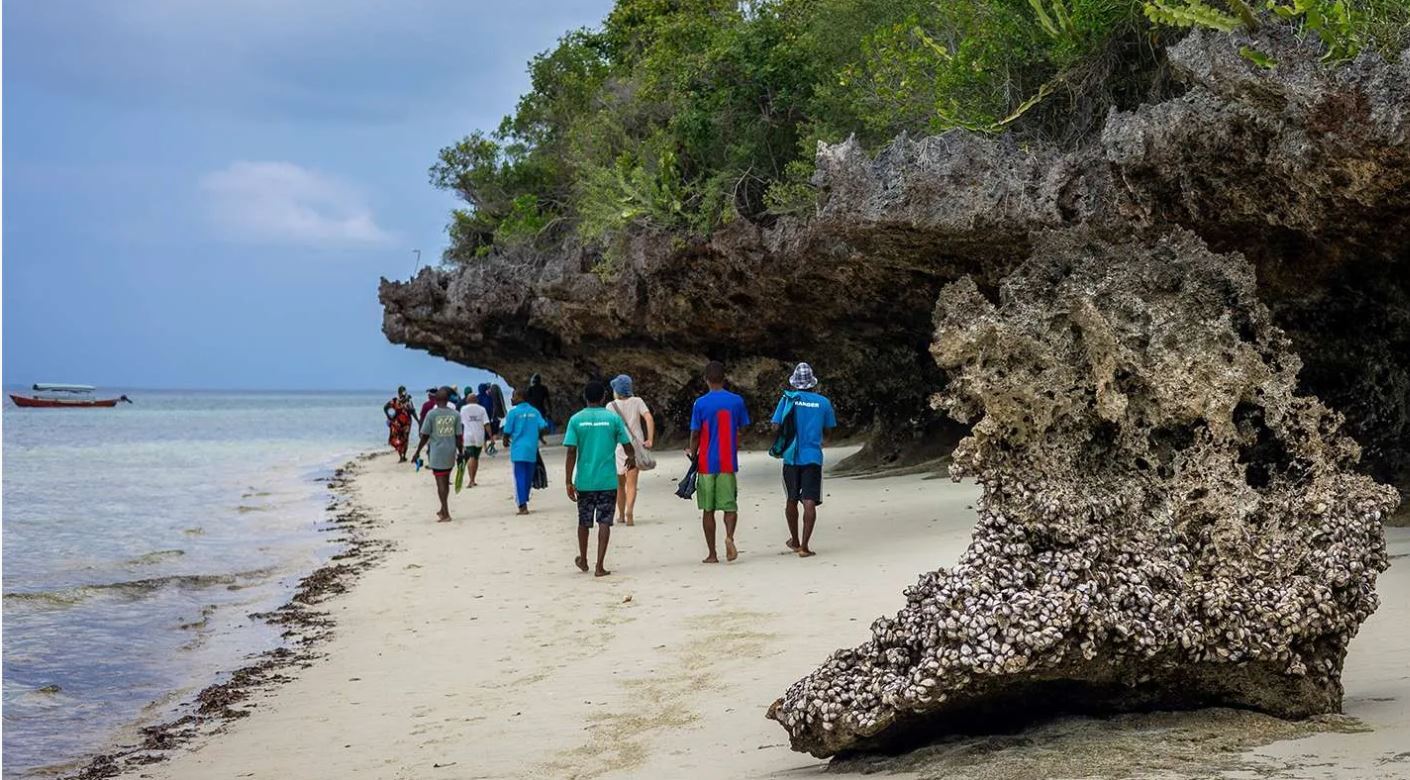
Intertidal walk
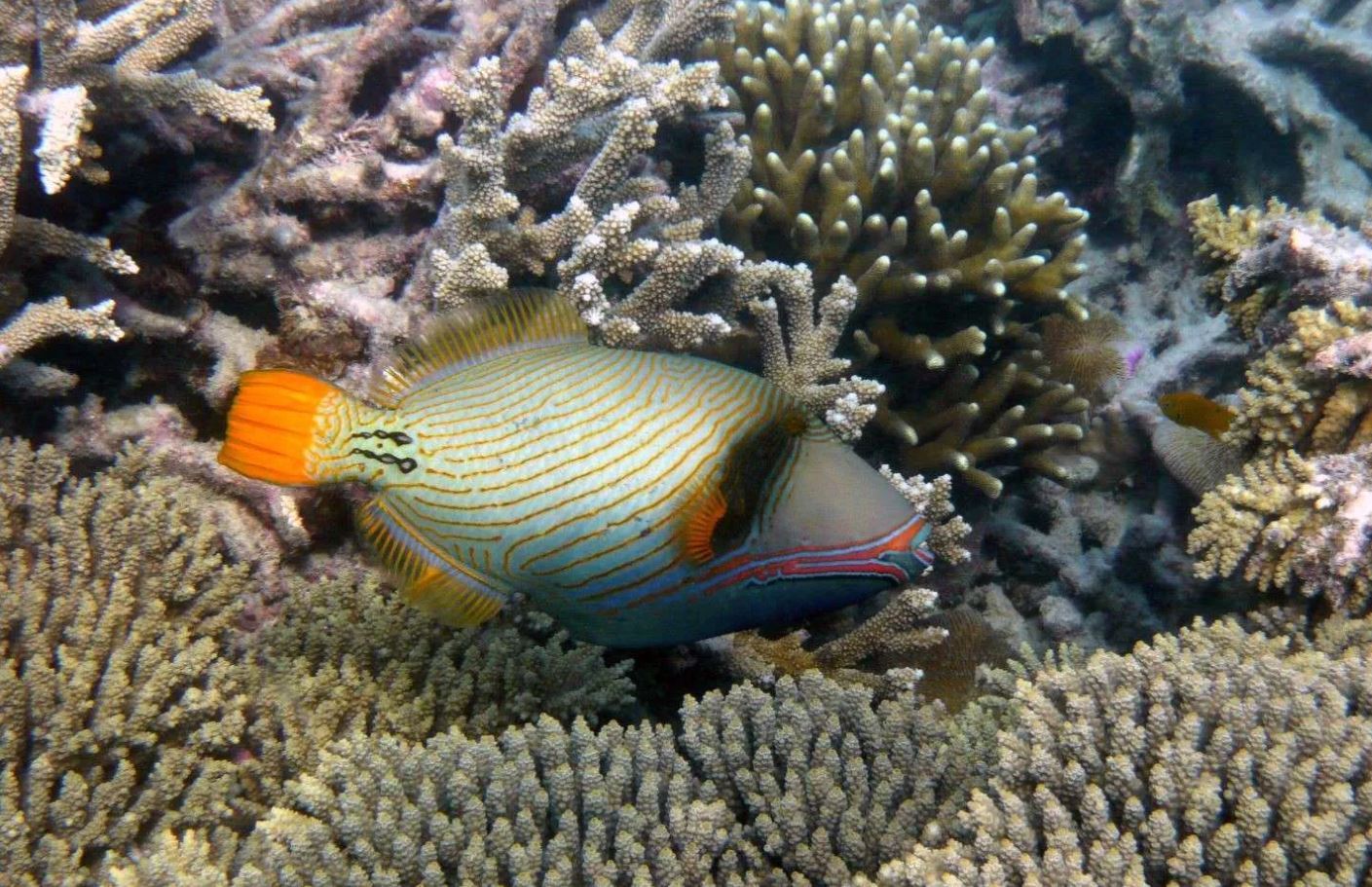
Coral reef sanctuary
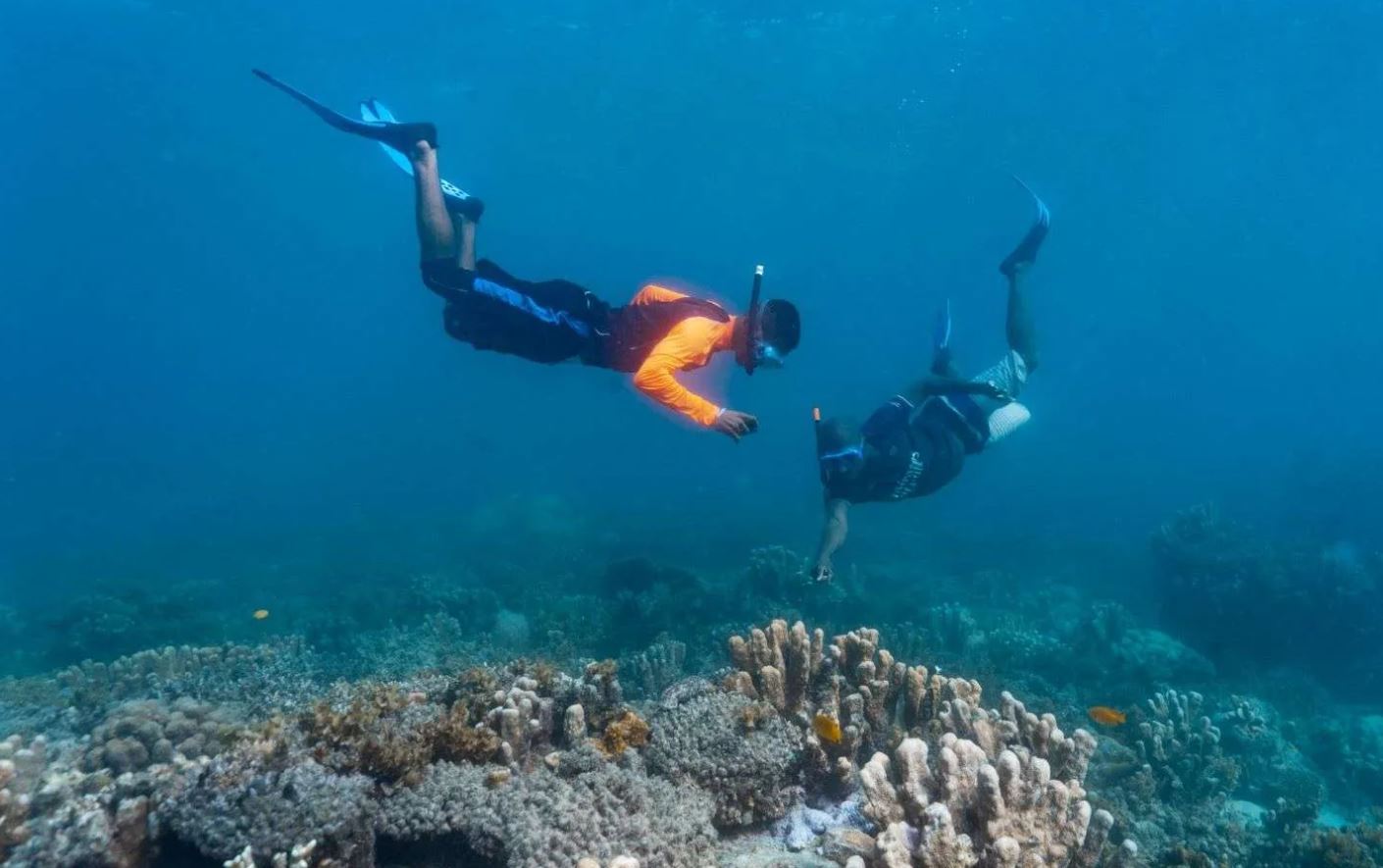
Research & Monitoring
Nightly Rate: Approximately $330–$420 USD per person, all-inclusive
Website: https://www.chumbeisland.com
5. Wa Ale Resort – Lampi Marine National Park, Myanmar
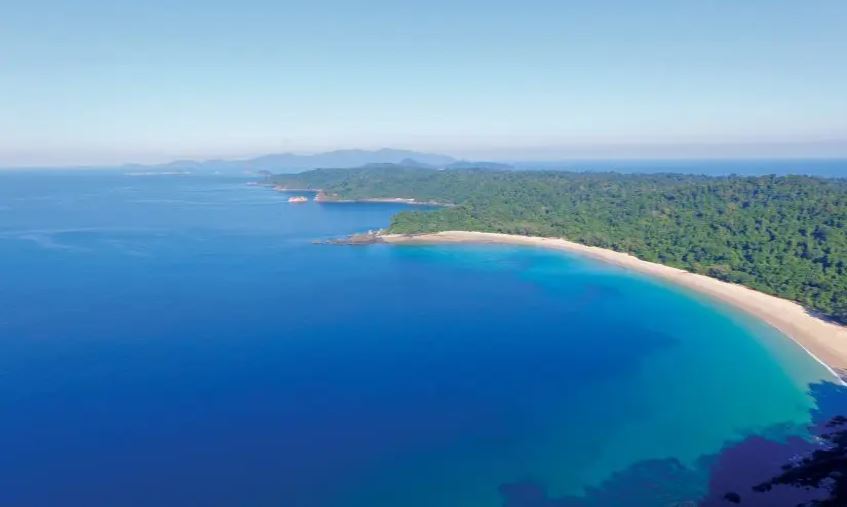
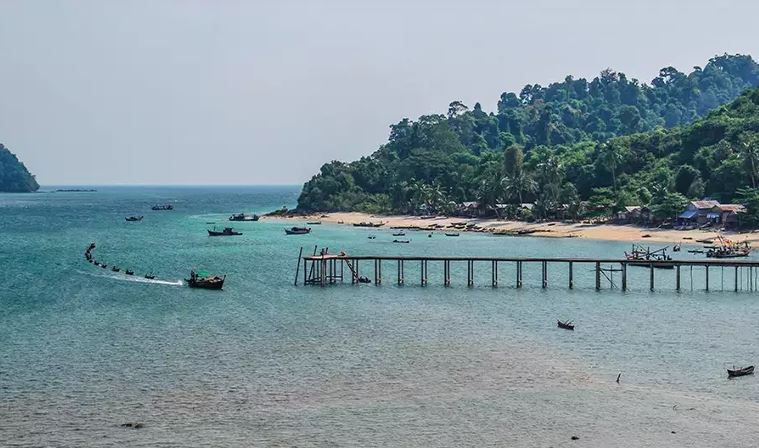
Overview:
Wa Ale is a luxury eco-resort located within Myanmar's Lampi Marine National Park. Accessible only by boat, this secluded retreat offers guests an immersive experience in a pristine natural environment, the resort is committed to sustainable tourism and the conservation of the park's diverse marine and terrestrial ecosystems, emphasizing sustainability and conservation.
Location:
Wa Ale Island, Myeik Archipelago, Tanintharyi Region, Myanmar
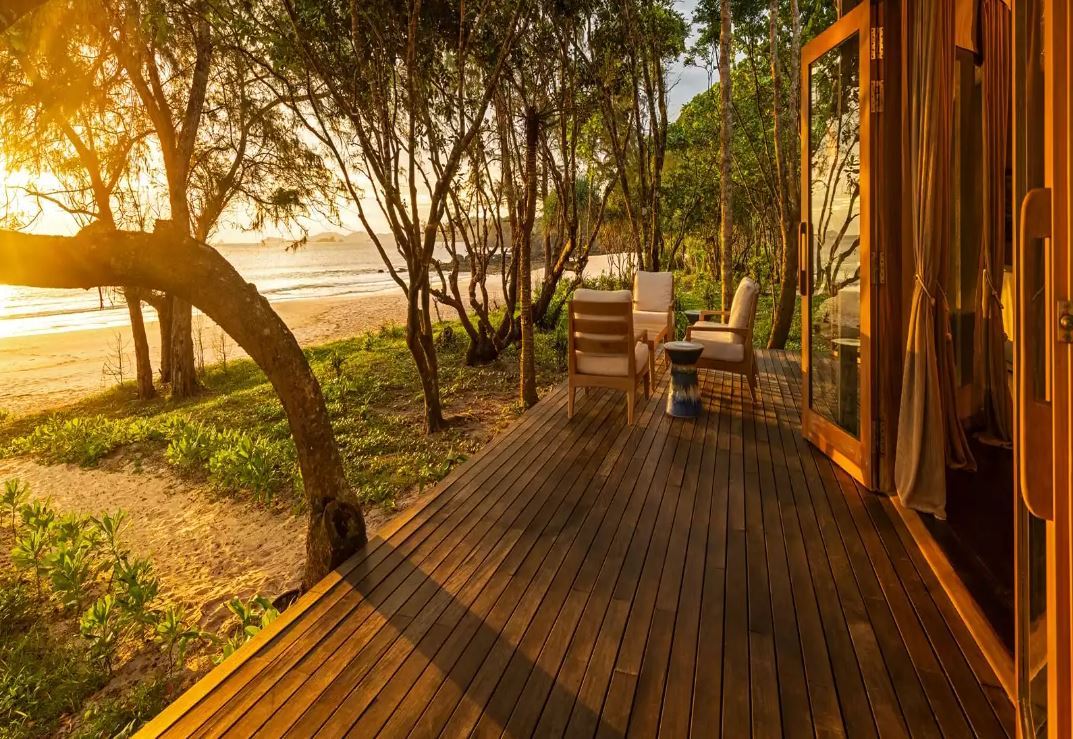
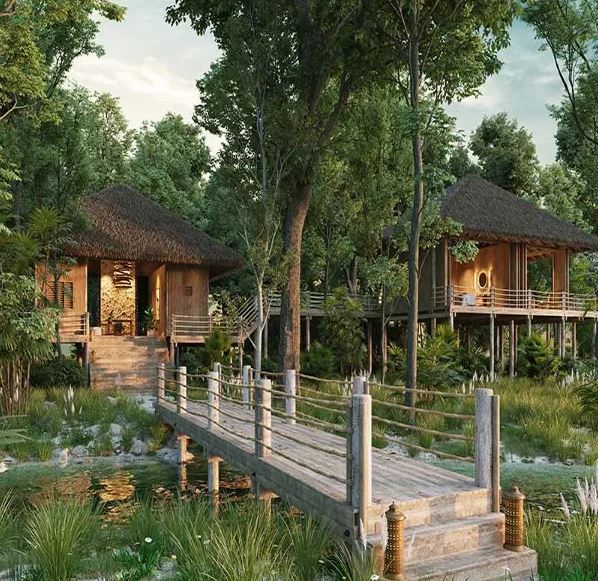
Eco-Features:
-
Constructed using reclaimed and sustainably sourced materials, ensuring no trees were cut during development..
-
Powered by solar energy and implements waste reduction strategies.
-
Utilizes a double-filtered natural spring water system, providing safe drinking water throughout the resort.
-
Supports local communities through employment and education initiatives.
-
Operates an on-site organic farm and a sustainable mari-culture project to supply fresh produce and seafood.
Ocean Conservation Initiatives:
-
Funds marine research and community-based conservation projects within the national park.
-
Established the Lampi Foundation, dedicating 20% of net profits and 2% of room revenues to conservation and community projects.
-
Supports sea turtle conservation through a dedicated hatchery and monitoring program.
-
Collaborates with Myanmar's Ministry of Environmental Conservation and Forestry, providing patrol boats to combat illegal fishing and protect coral reefs.
-
Engages guests in conservation efforts, offering educational programs and opportunities to participate in environmental initiatives
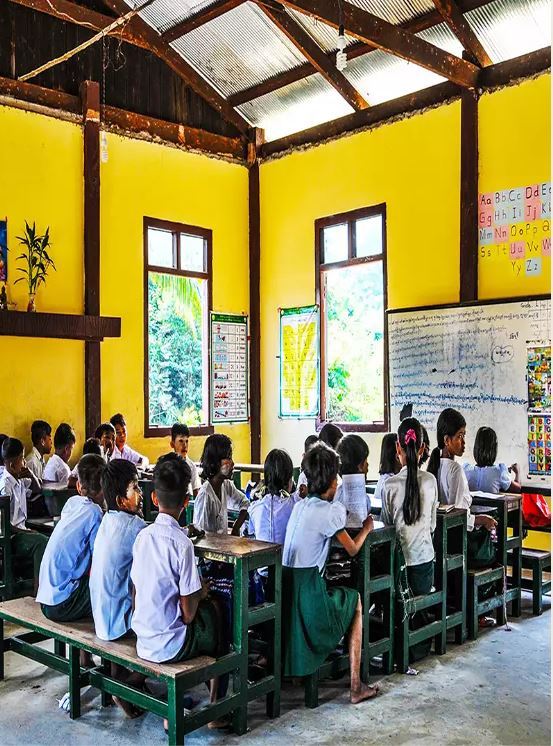
Wa Ale pledges to annually donate 20% of net profits and 2% of room revenues to the Lampi Foundation. It is Wa Ale commitment to help preserve and protect the Lampi Marine National Park under the guidance of the Myanmar government with the intention to set a precedent for future tourism projects in the Myeik Archipelago
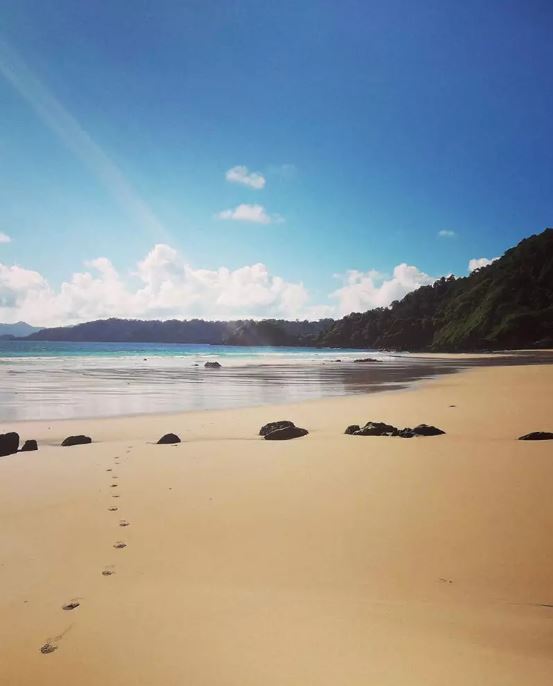
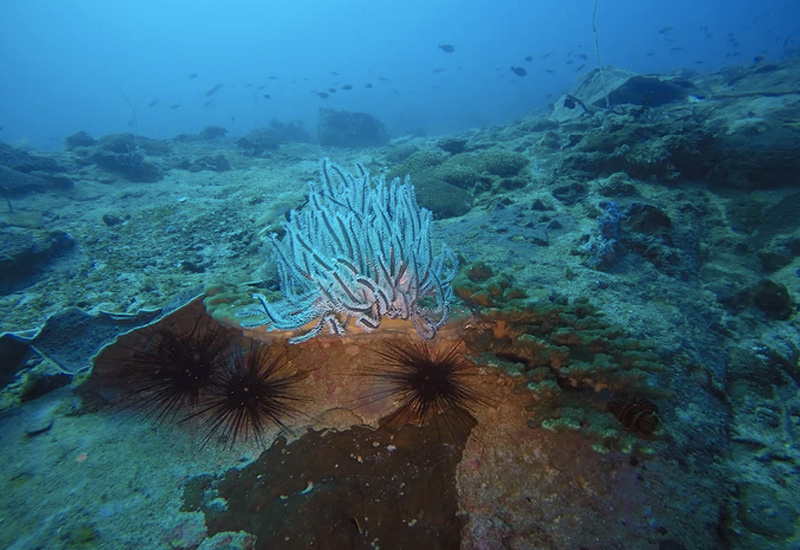
Nightly Rate: Rates start from approximately €837 per night for a Treetop Villa, with Beach Villas starting at €1,135 per night. Rates include full board, select beverages, and scheduled boat transfers.
Website: waaleresort.com
6. Pikaia Lodge – Santa Cruz Island, Galápagos
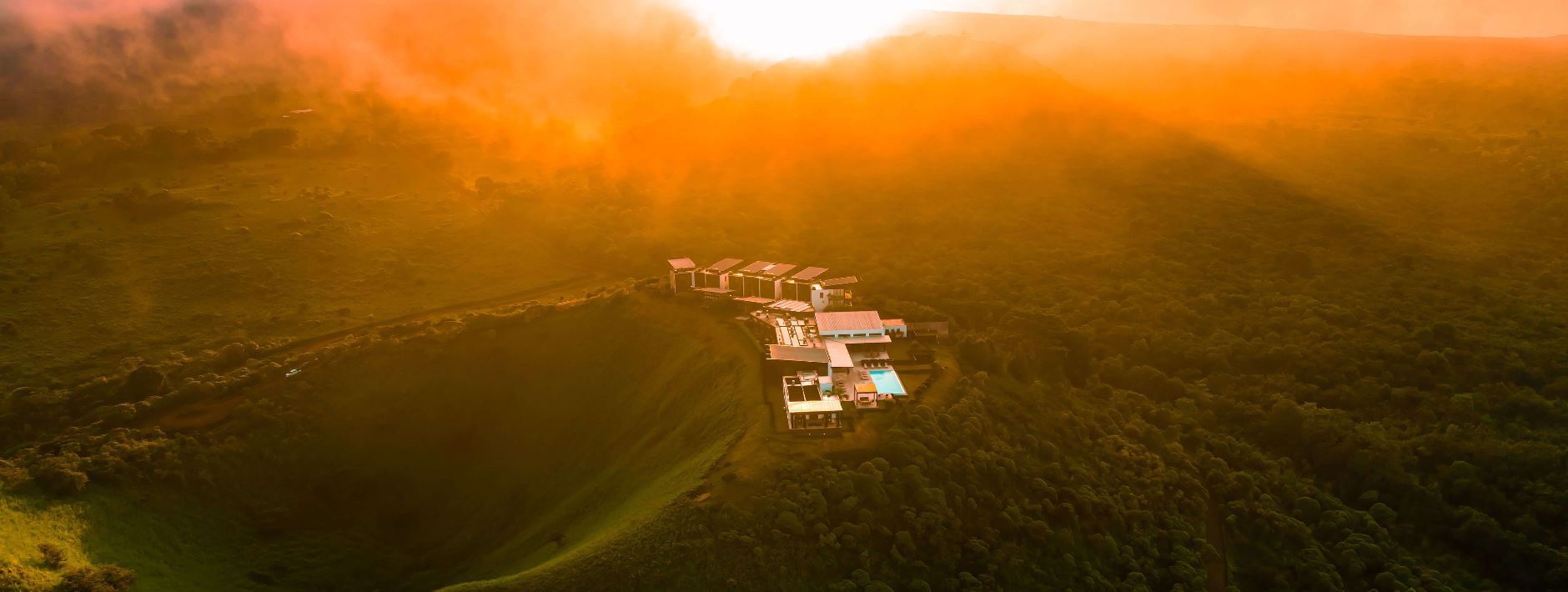
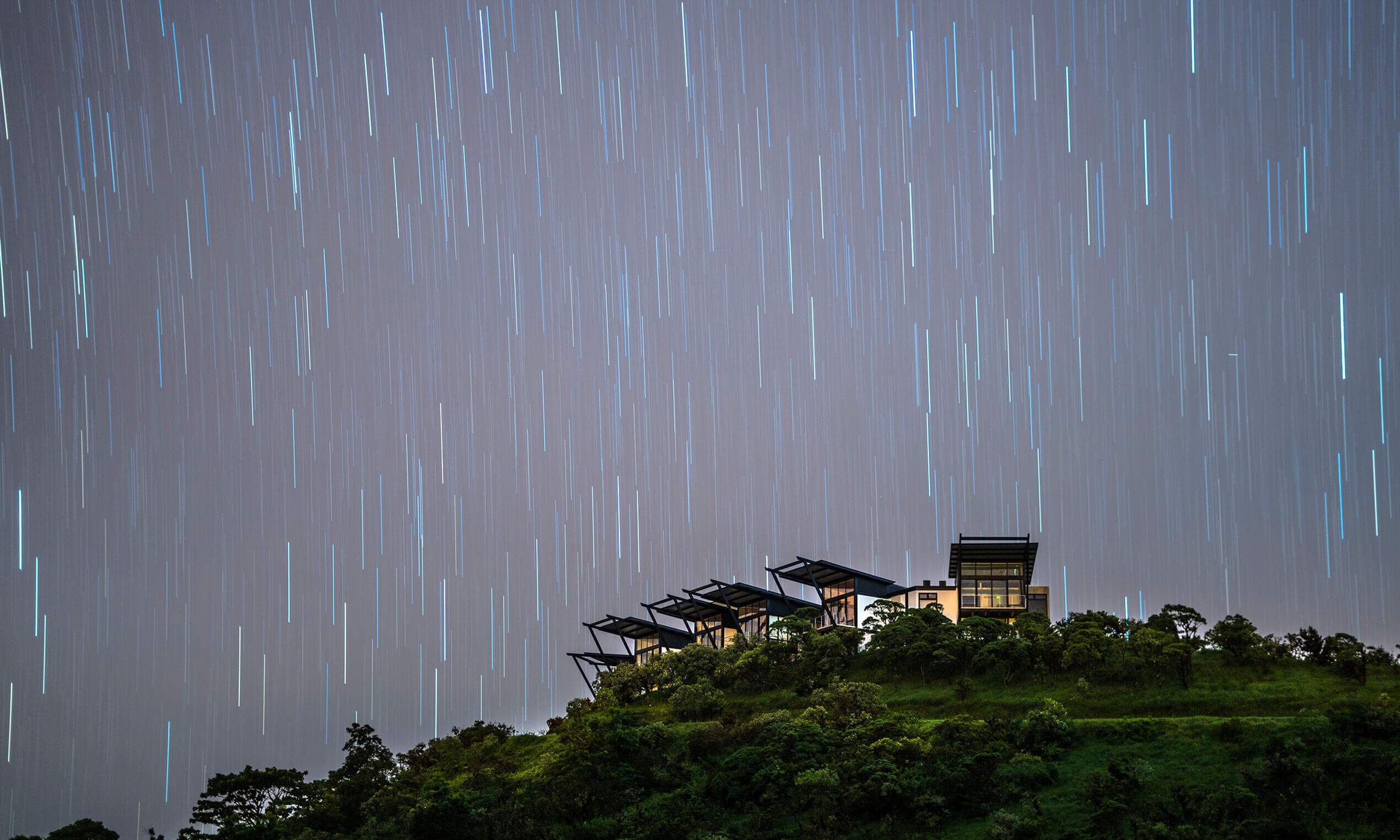
Overview:
Pikaia Lodge is a luxurious eco-lodge perched atop an extinct volcanic crater on Santa Cruz Island in the Galápagos. Designed for environmentally conscious travellers, the lodge offers panoramic views, sustainable practices, and exclusive access to the archipelago's unique biodiversity. The lodge combines high-end accommodations with a strong commitment to environmental stewardship.
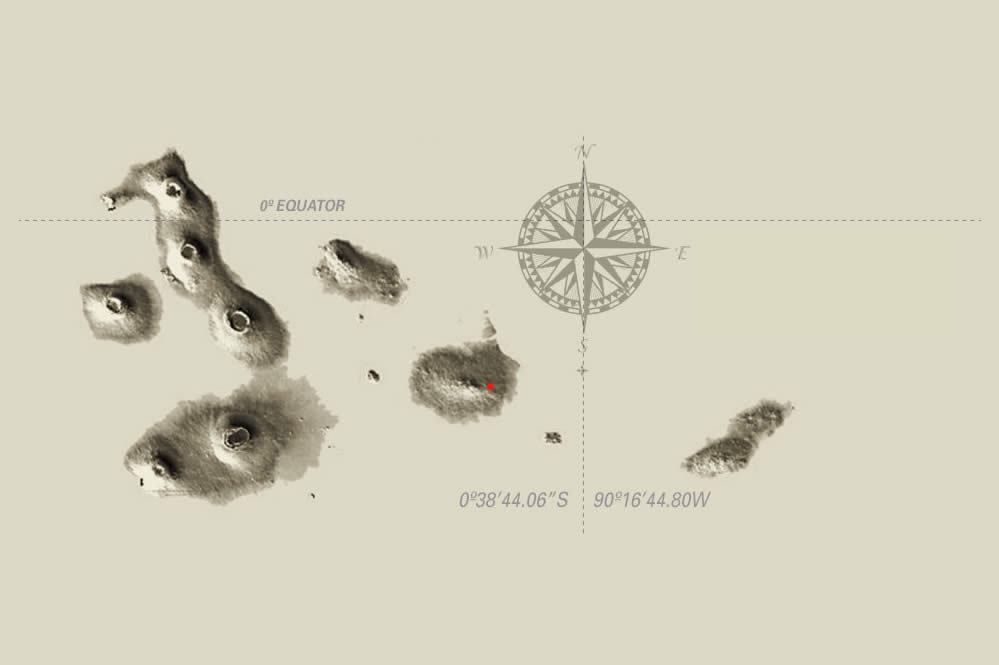
Location:
Santa Cruz Island, Galápagos Islands, Ecuador
Eco-Features:
-
Designed with energy efficiency in mind, utilizing solar panels and natural ventilation.
-
Employs water recycling systems and eco-friendly waste management practices.
-
Sources food locally to support the island's economy and reduce carbon emissions.
-
Built using sustainable materials and methods, minimizing environmental impact.
-
Implements water conservation systems and eco-friendly waste management practices.
-
Features an on-site organic garden supplying fresh produce for the lodge's restaurant.
-
Provides electric transportation options for guests to reduce carbon emissions.
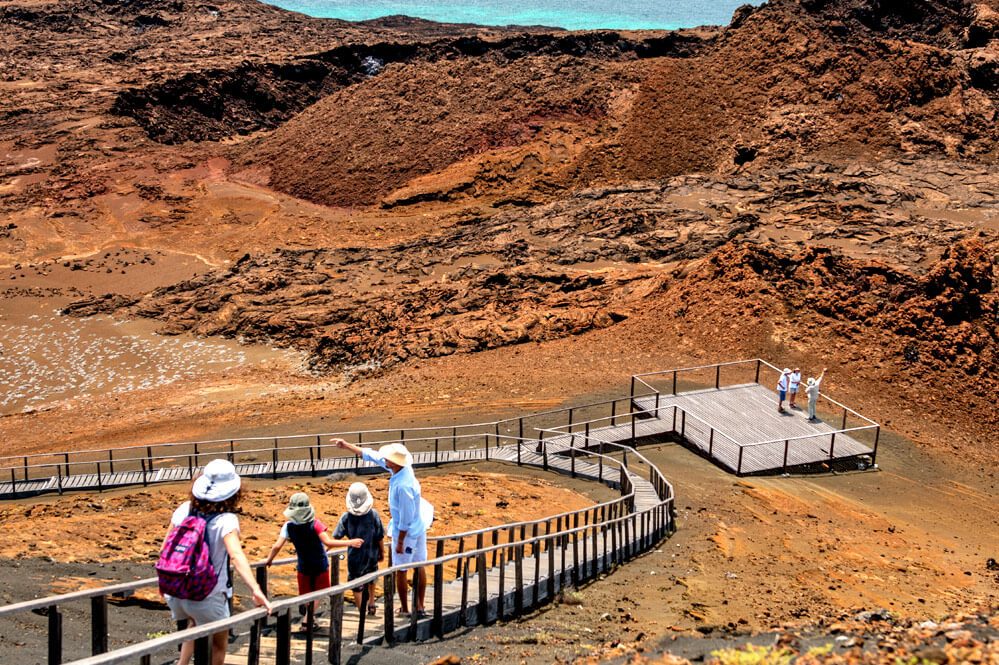
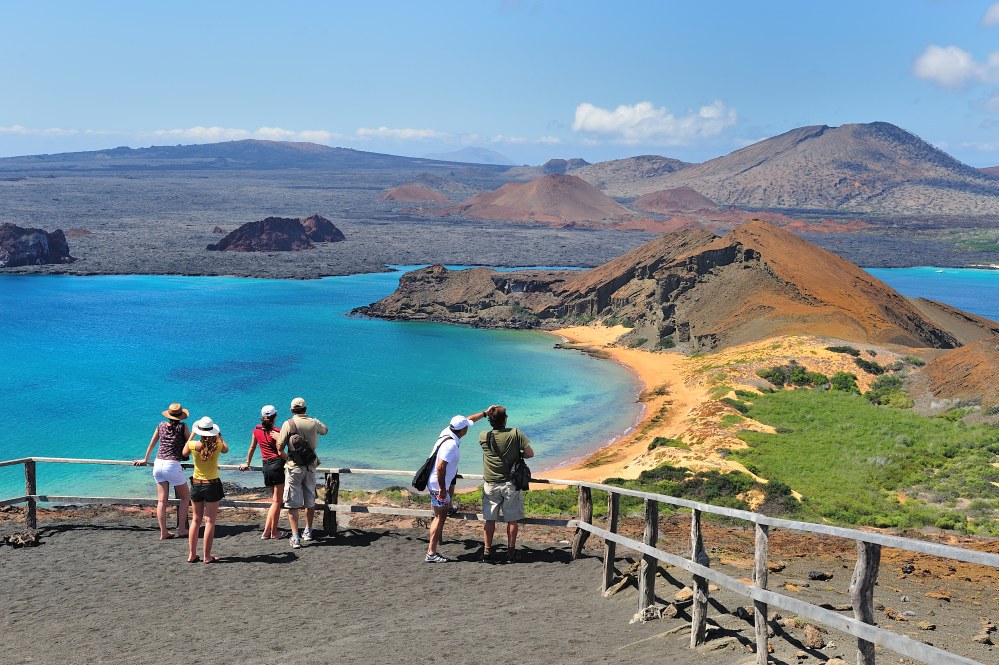
Ocean Conservation Initiatives:
-
Collaborates with the Galápagos National Park Directorate to support marine conservation efforts.
-
Offers guided excursions aboard the lodge's private yacht, M/Y Vision, promoting sustainable tourism and environmental education.
-
Engages in habitat restoration projects and supports local research initiatives focused on preserving the archipelago's unique ecosystems.
-
Educates guests on conservation through interactive programs and partnerships with local organizations.
-
Strict eco-tourism practices and visitor limits to protect the fragile marine ecosystem
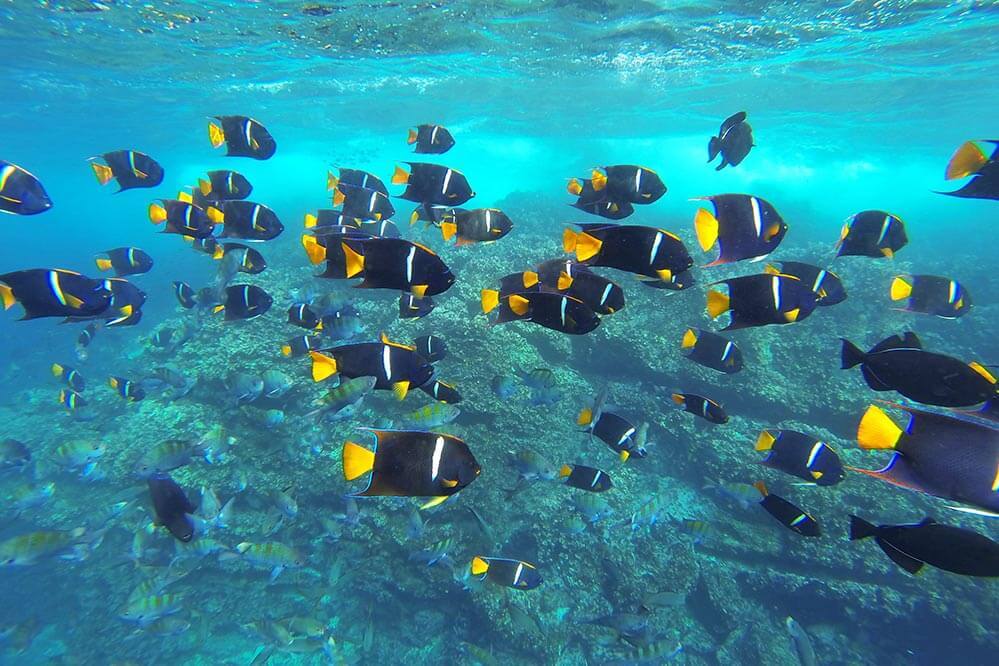
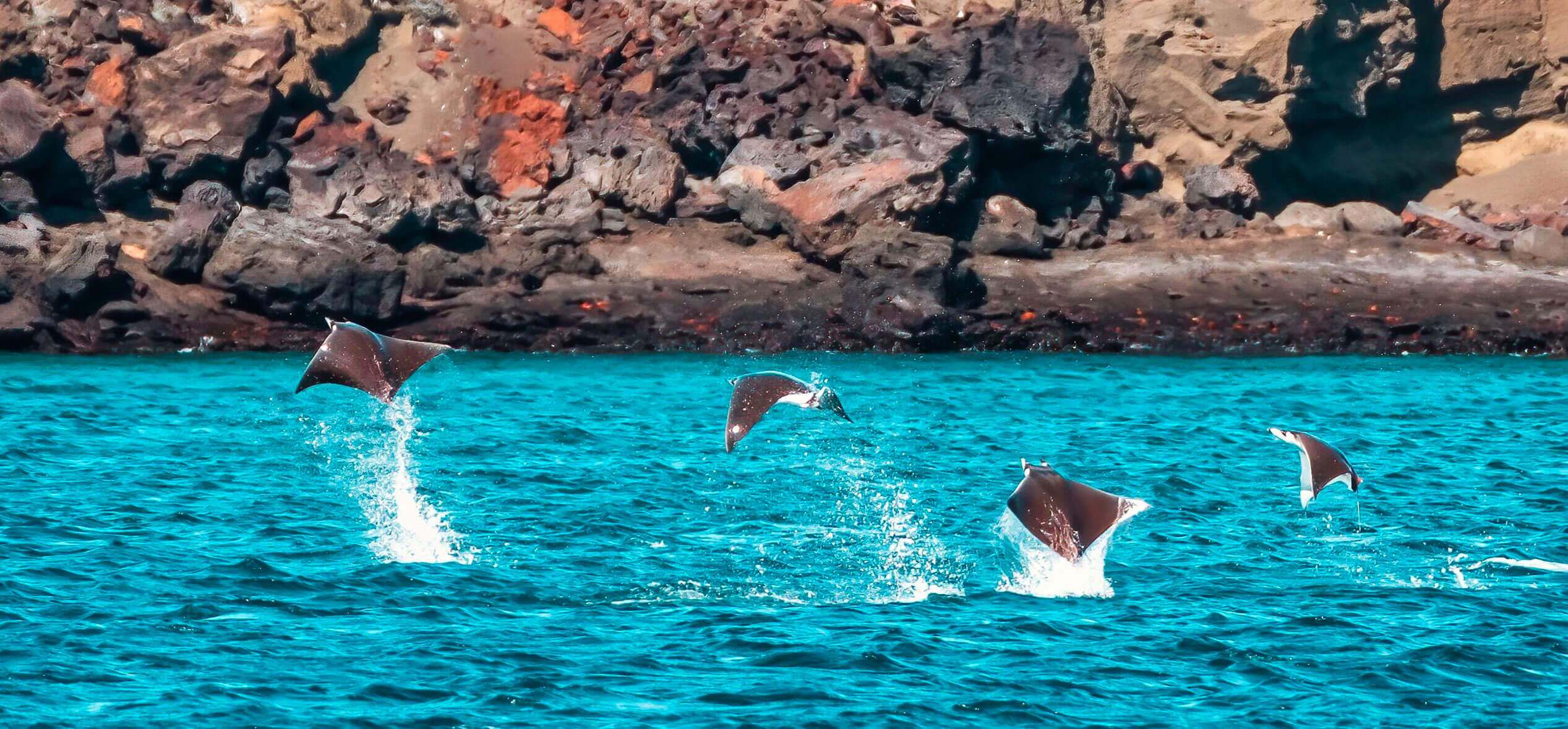
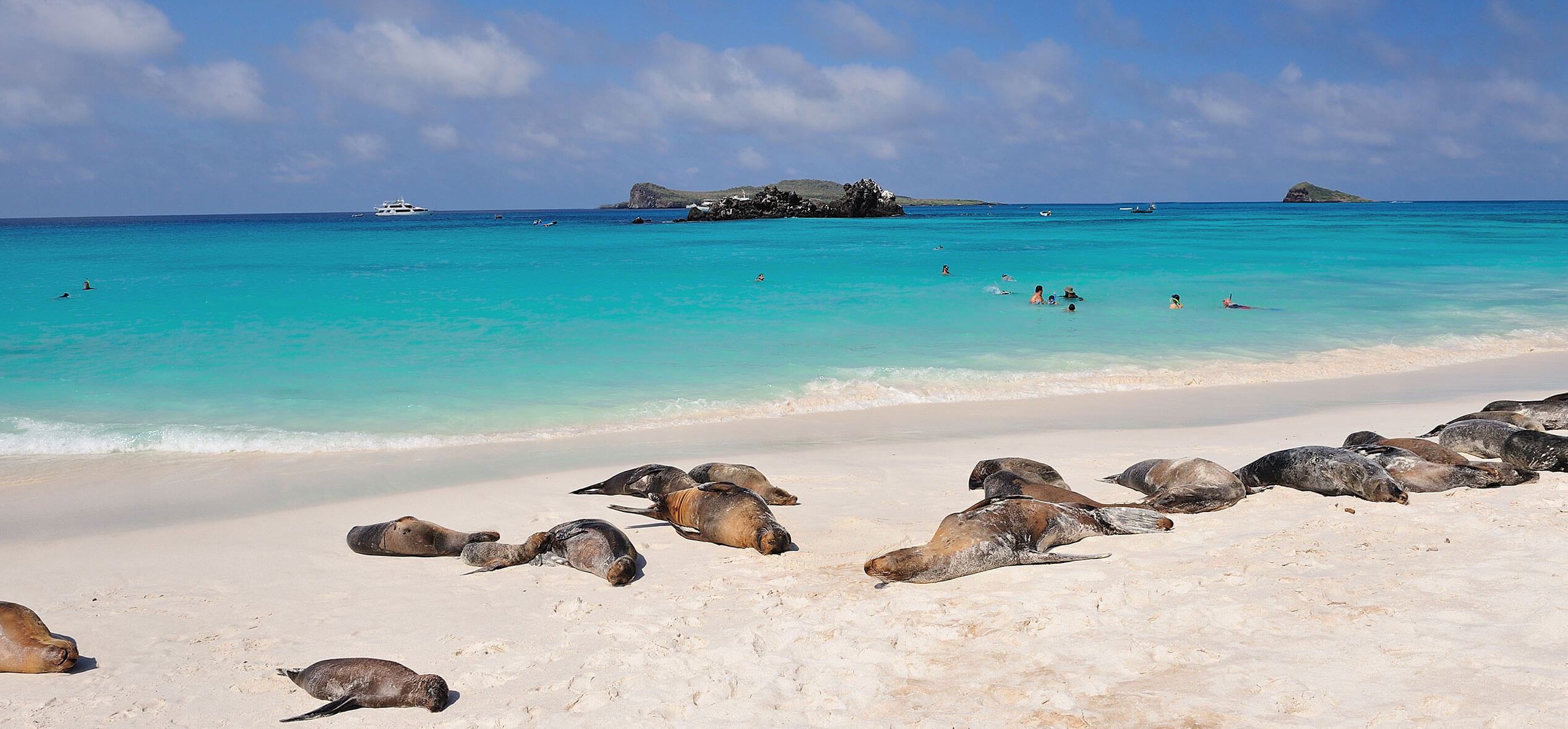
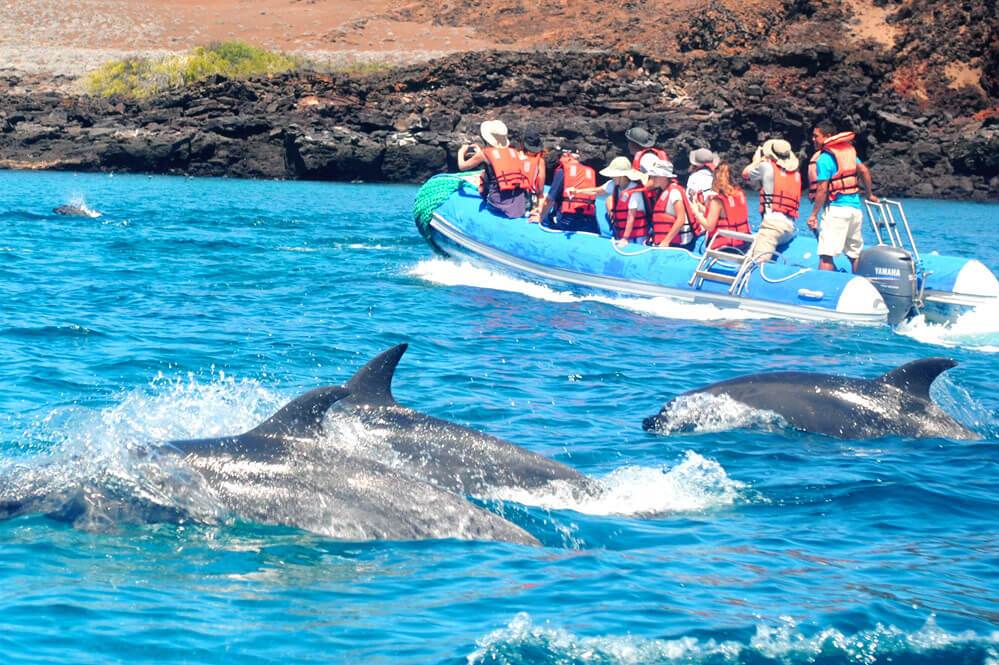
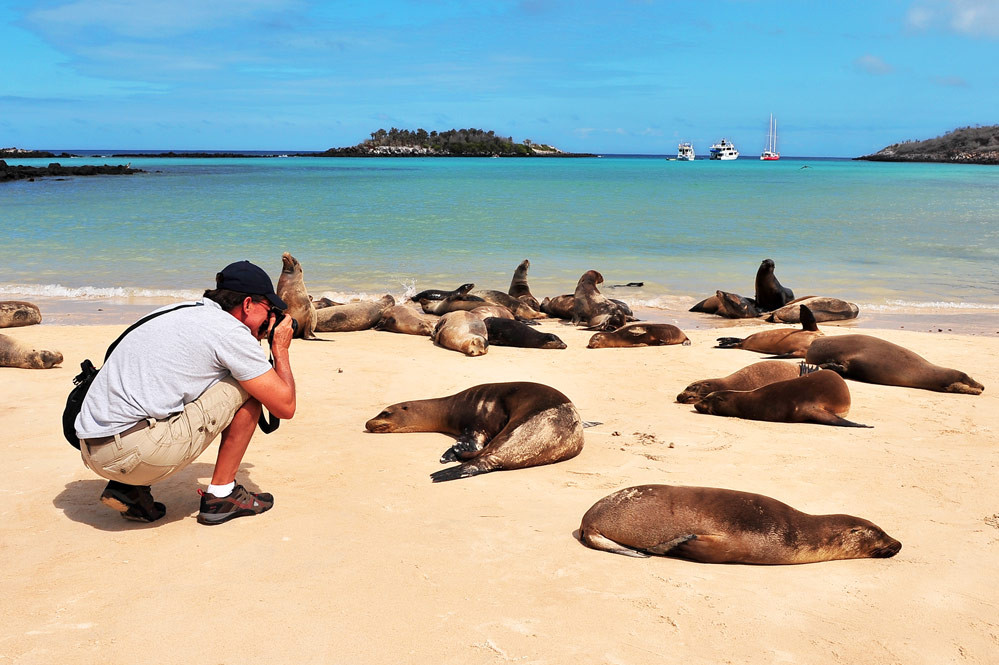
Nightly Rate: Rates start from approximately $3,400 USD per night, depending on room type and season. Packages typically include accommodations, meals, guided excursions, and use of the lodge's private yacht.
Website: pikaialodge.com
7. Playa Cativo Lodge – Golfo Dulce, Costa Rica
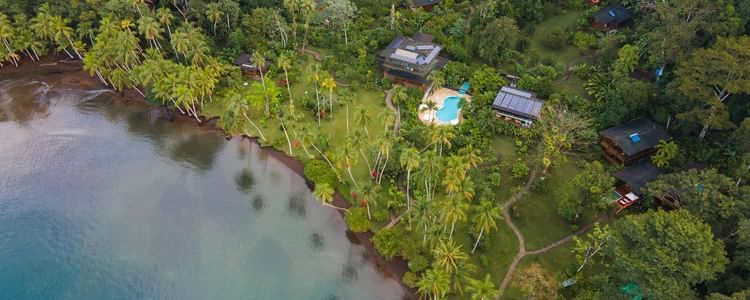
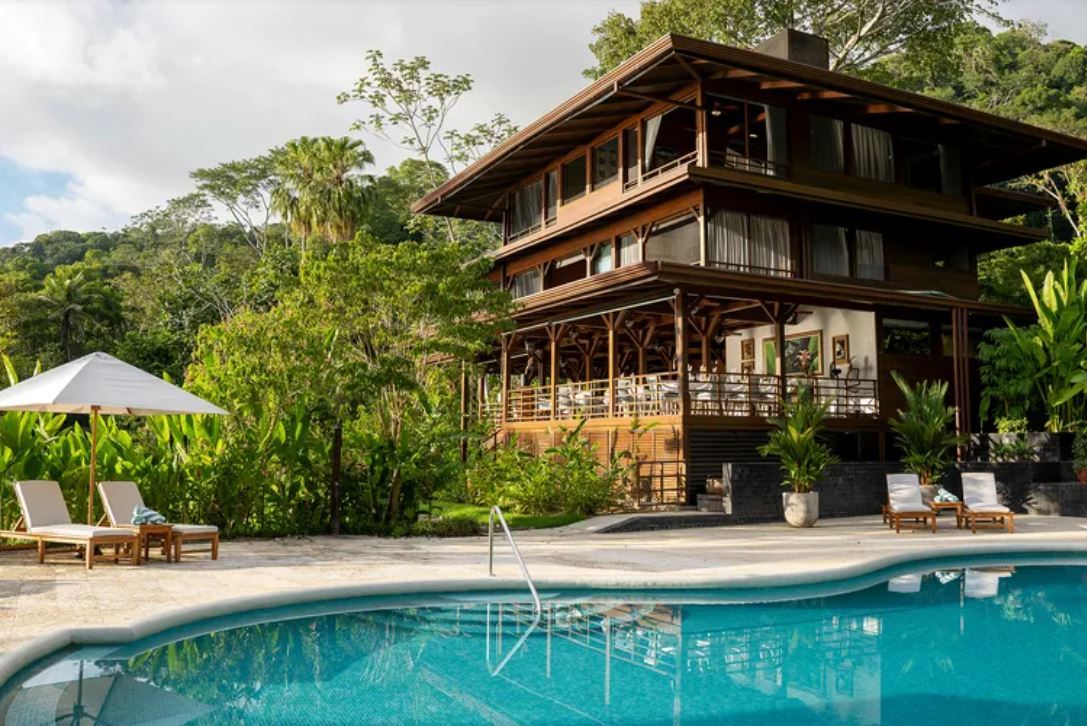
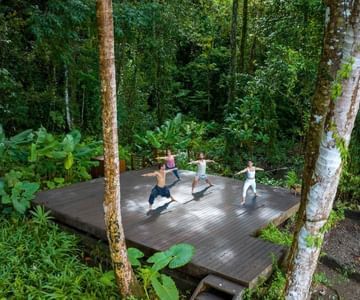
Overview:
Playa Cativo Lodge is a secluded eco-luxury resort nestled within the Piedras Blancas National Park, accessible only by boat. Surrounded by lush rainforest and pristine beaches, it offers guests an immersive experience in one of Costa Rica's most biodiverse regions.
Location:
Golfo Dulce, Osa Peninsula, Costa Rica
Eco-Features:
-
Powered entirely by renewable energy sources, including a hydroelectric micro-generator and solar panels.
-
Utilizes a mountain spring for fresh water supply.
-
Operates an organic farm providing fresh produce for the lodge's restaurant.
-
Constructed with reclaimed hardwoods and sustainable materials.
Ocean Conservation Initiatives:
-
Engages in marine conservation efforts within the Golfo Dulce, a critical habitat for dolphins, whales, and sea turtles.
-
Collaborates with local organizations to monitor marine biodiversity and promote sustainable fishing practices.
-
Offers educational programs and guided tours to raise awareness about marine ecosystems.
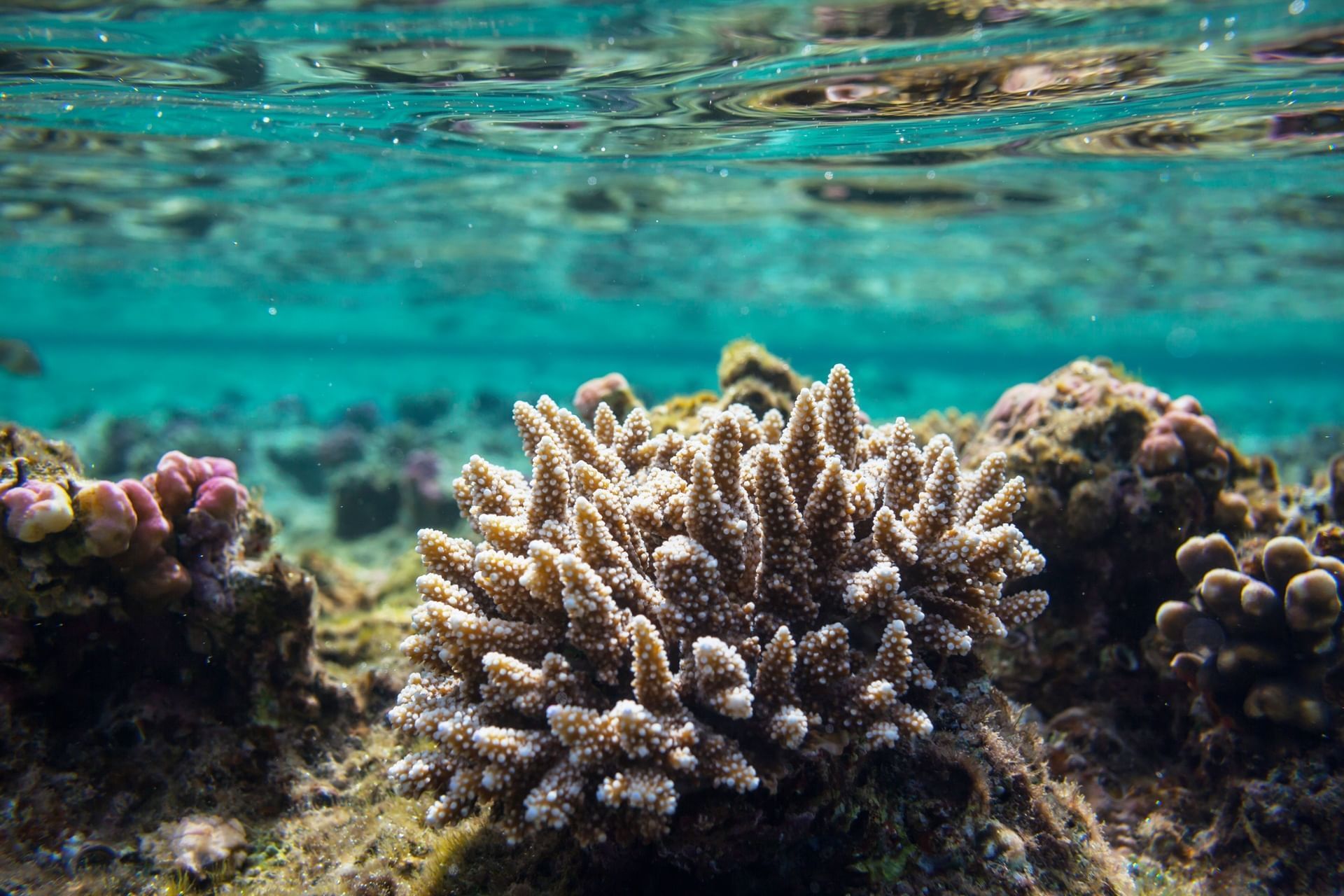
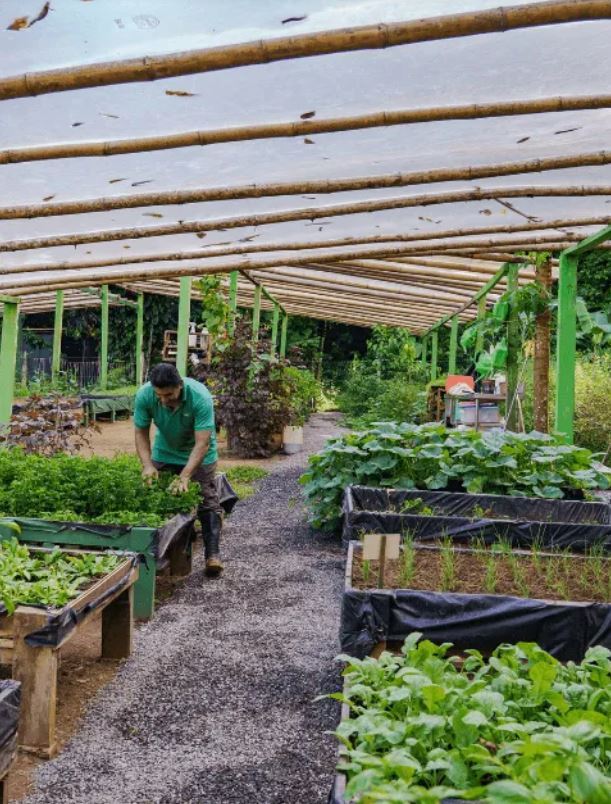
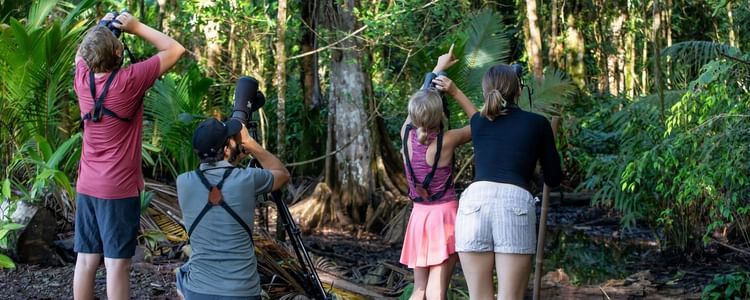
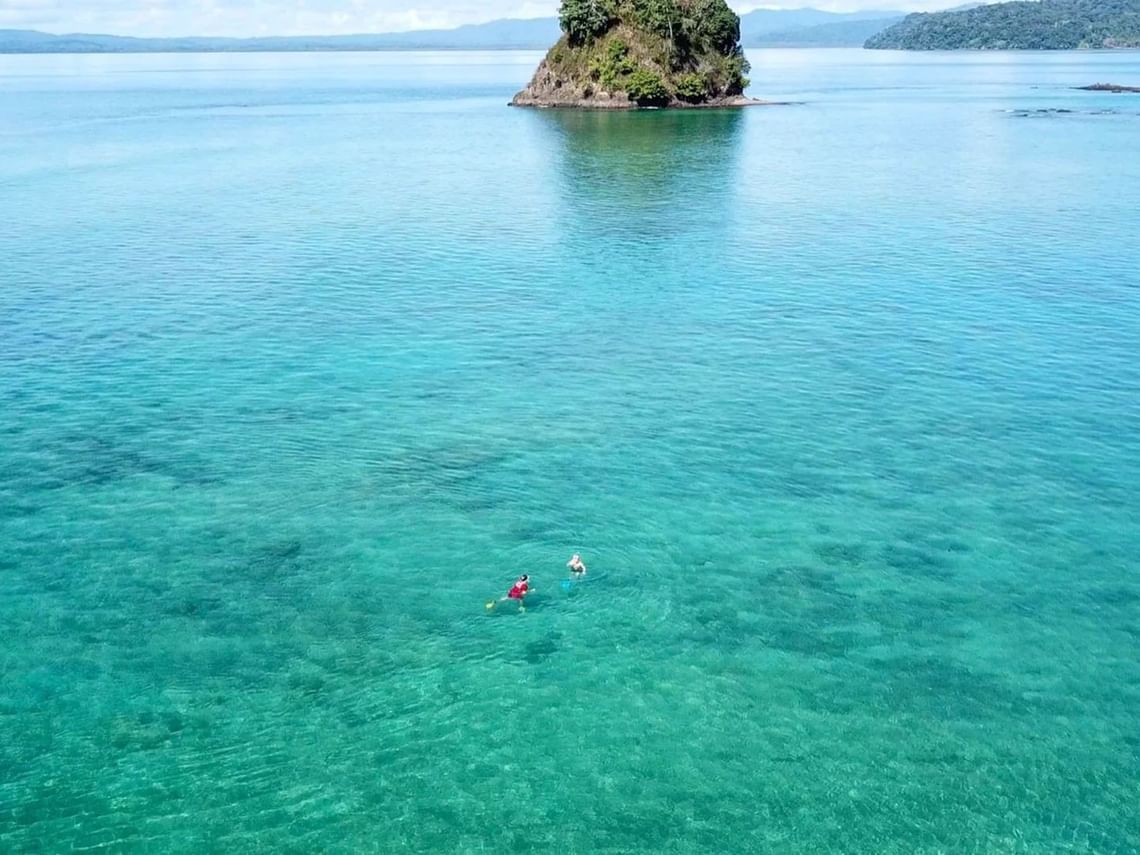
Nightly Rate: Rates start from approximately $500 USD per night, varying by season and accommodation type.
Website: https://www.playacativo.com
8. Song Saa Private Island – Koh Rong Archipelago, Cambodia
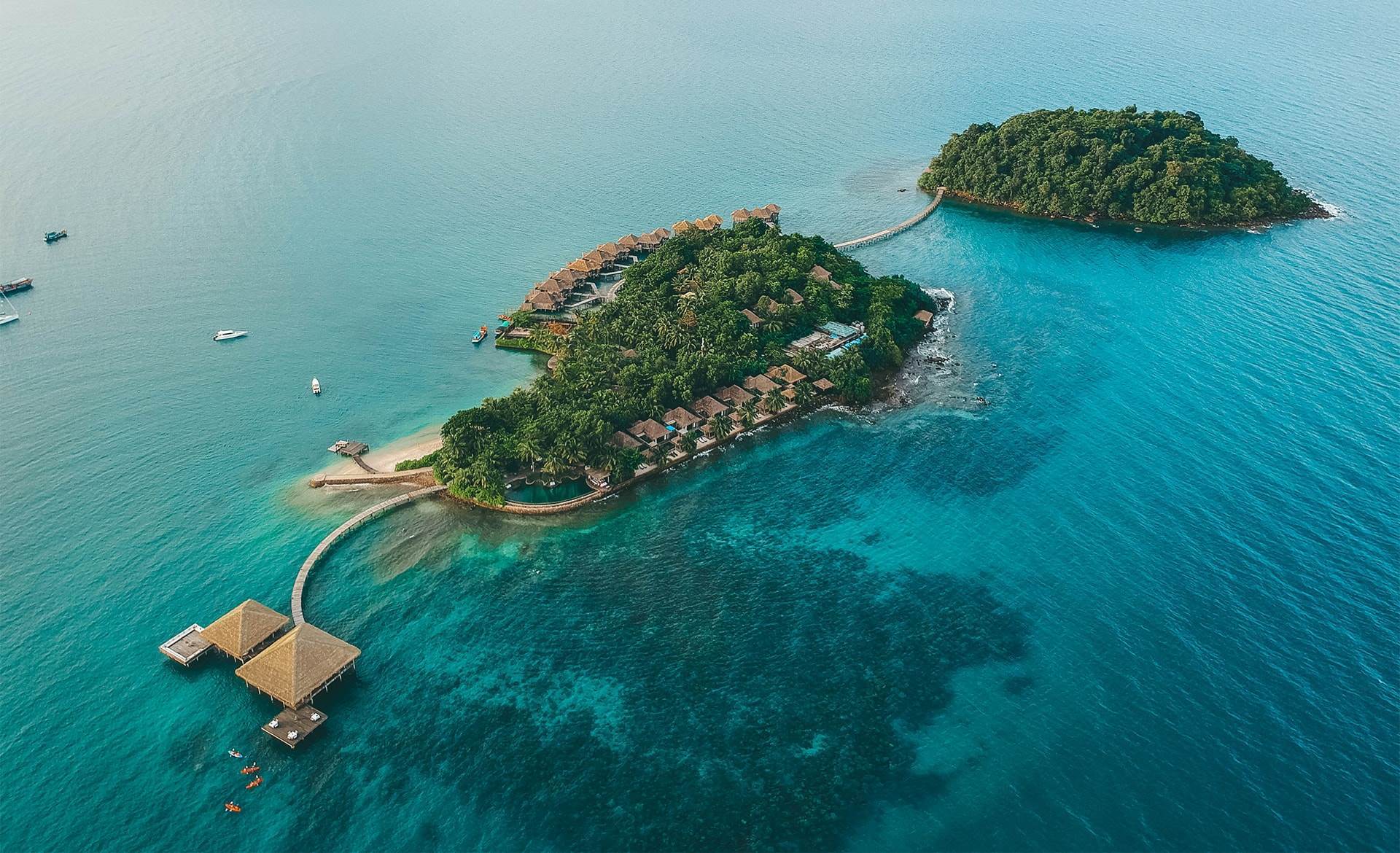
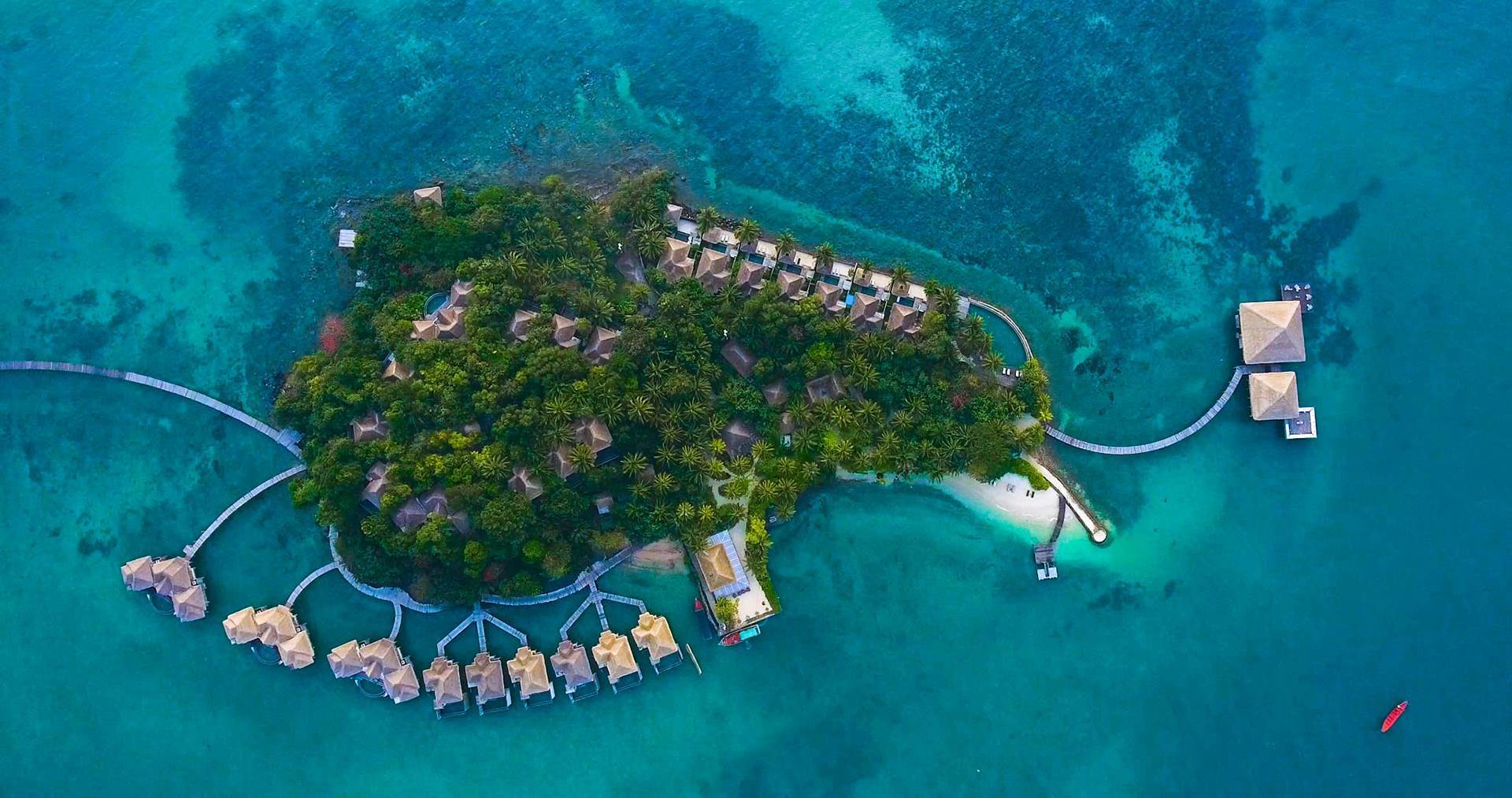
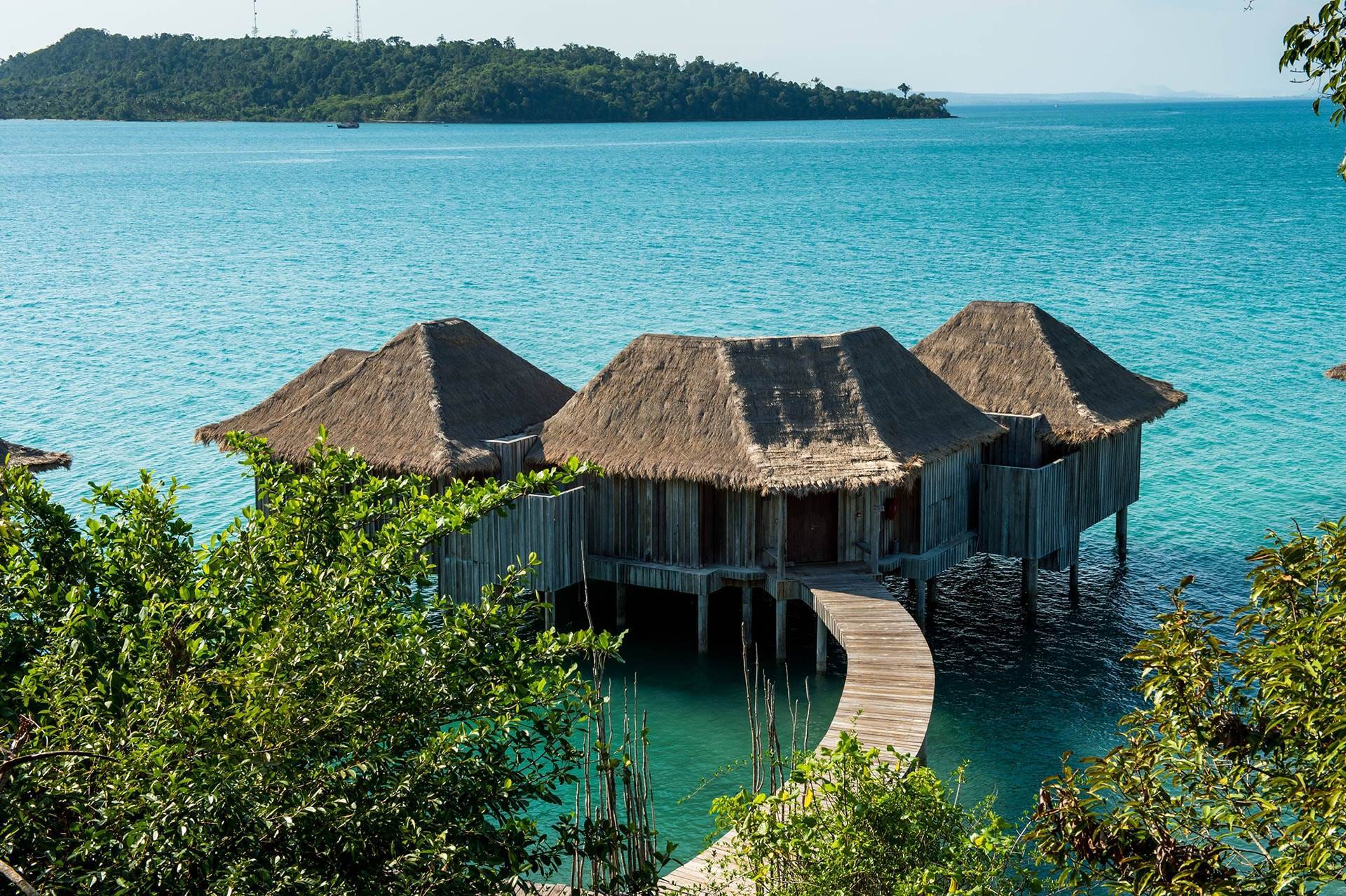
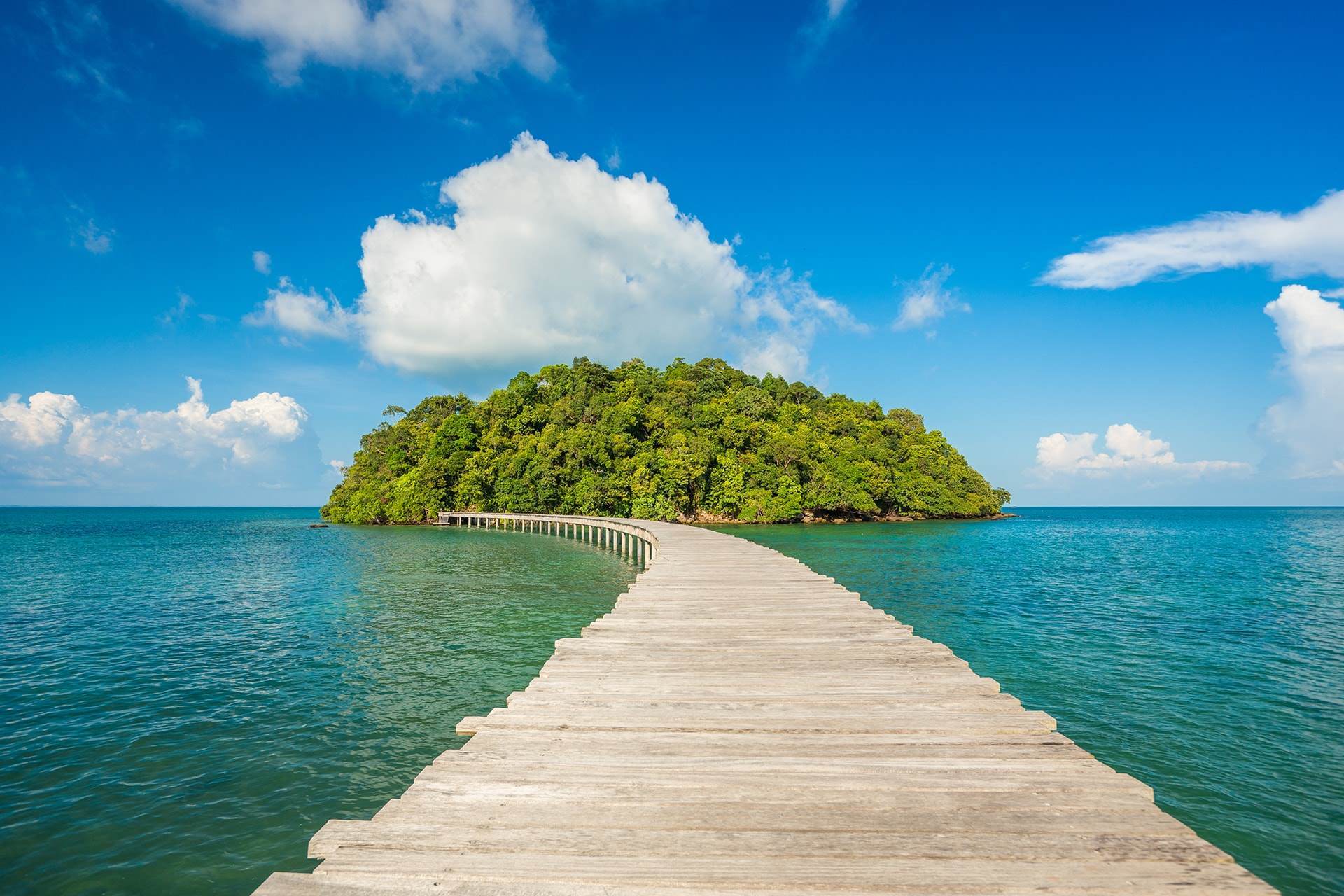
Overview:
Song Saa Private Island is a luxury resort spanning two islands connected by a footbridge, offering an intimate escape in the Koh Rong Archipelago. The resort is renowned for its commitment to environmental sustainability and community development. This pioneering resort was created with deep ecological values, and its founders established the Song Saa Foundation to protect local communities and marine biodiversity.
Location:
Koh Rong Archipelago, Cambodia
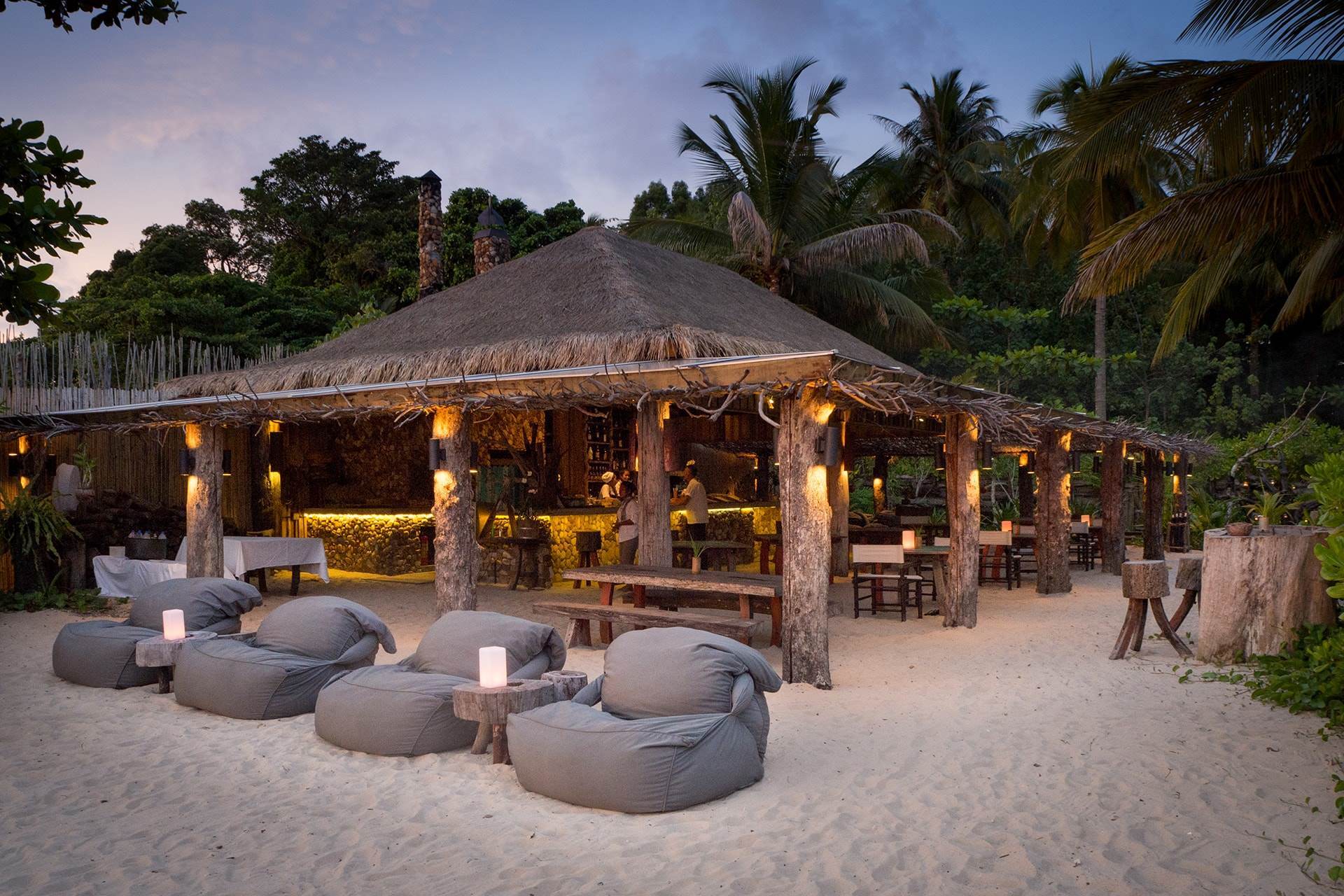
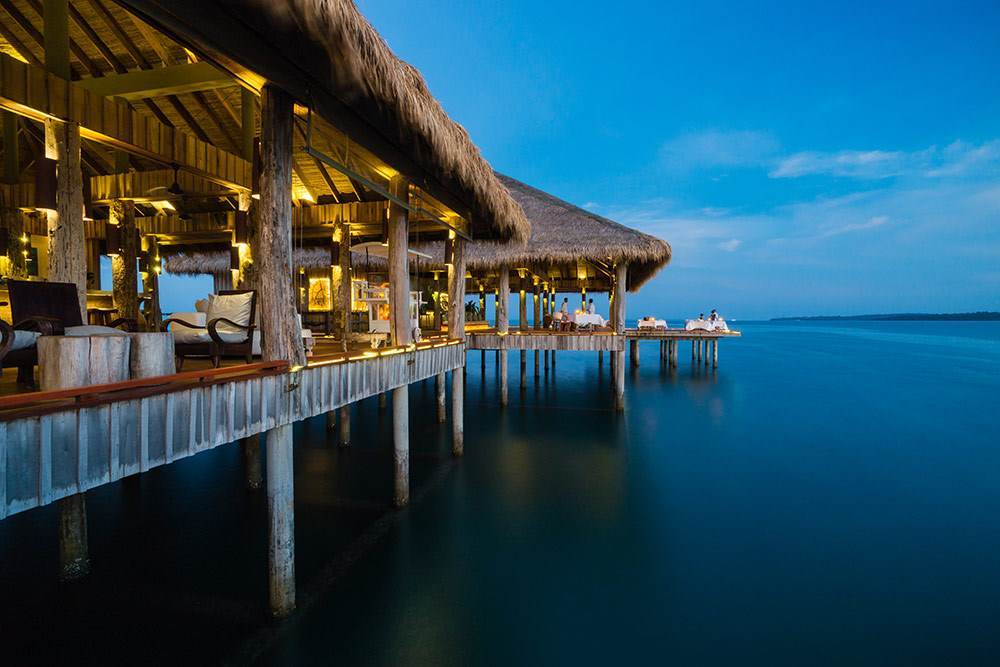
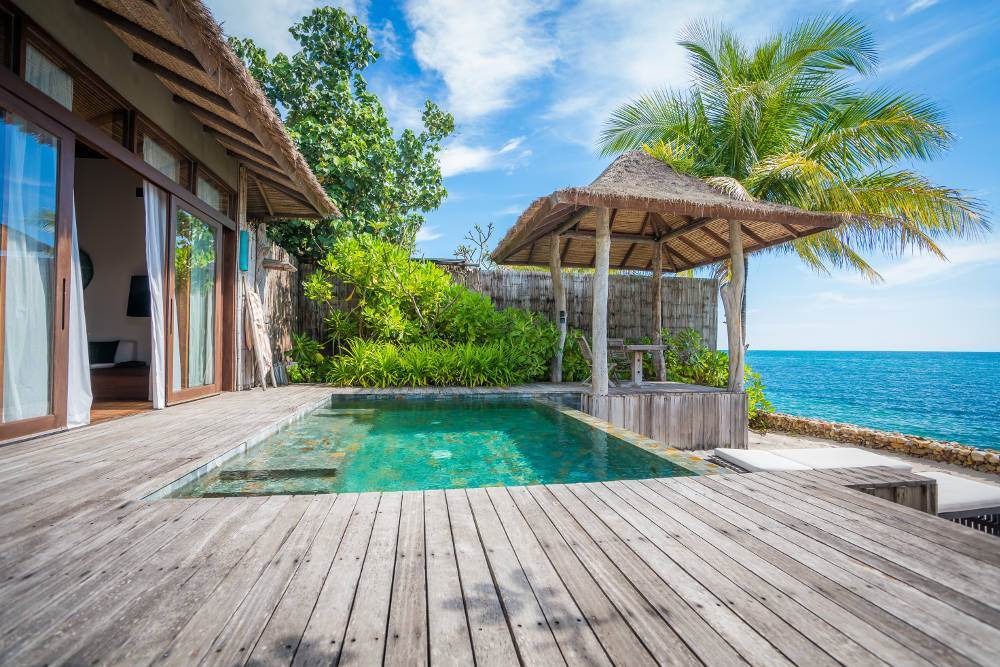
Eco-Features:
-
Constructed using reclaimed timber and local materials.
-
The villas feature natural ventilation, open floorplans, and eco-conscious furnishings.
-
Employs solar power and rainwater harvesting systems.
-
Implements comprehensive waste management and recycling programs.
-
Maintains a marine reserve around the island to protect coral reefs and marine life.
Ocean Conservation Initiatives:
-
Created Cambodia’s first private marine reserve, protecting coral reefs and seagrass meadows.
-
Established the Song Saa Foundation, focusing on marine research and conservation, community development, and environmental education.
-
Conducts coral reef restoration projects and marine biodiversity monitoring.
-
Works with local communities to promote sustainable fishing practices, environmental stewardship and enforcement of no-fishing zones.
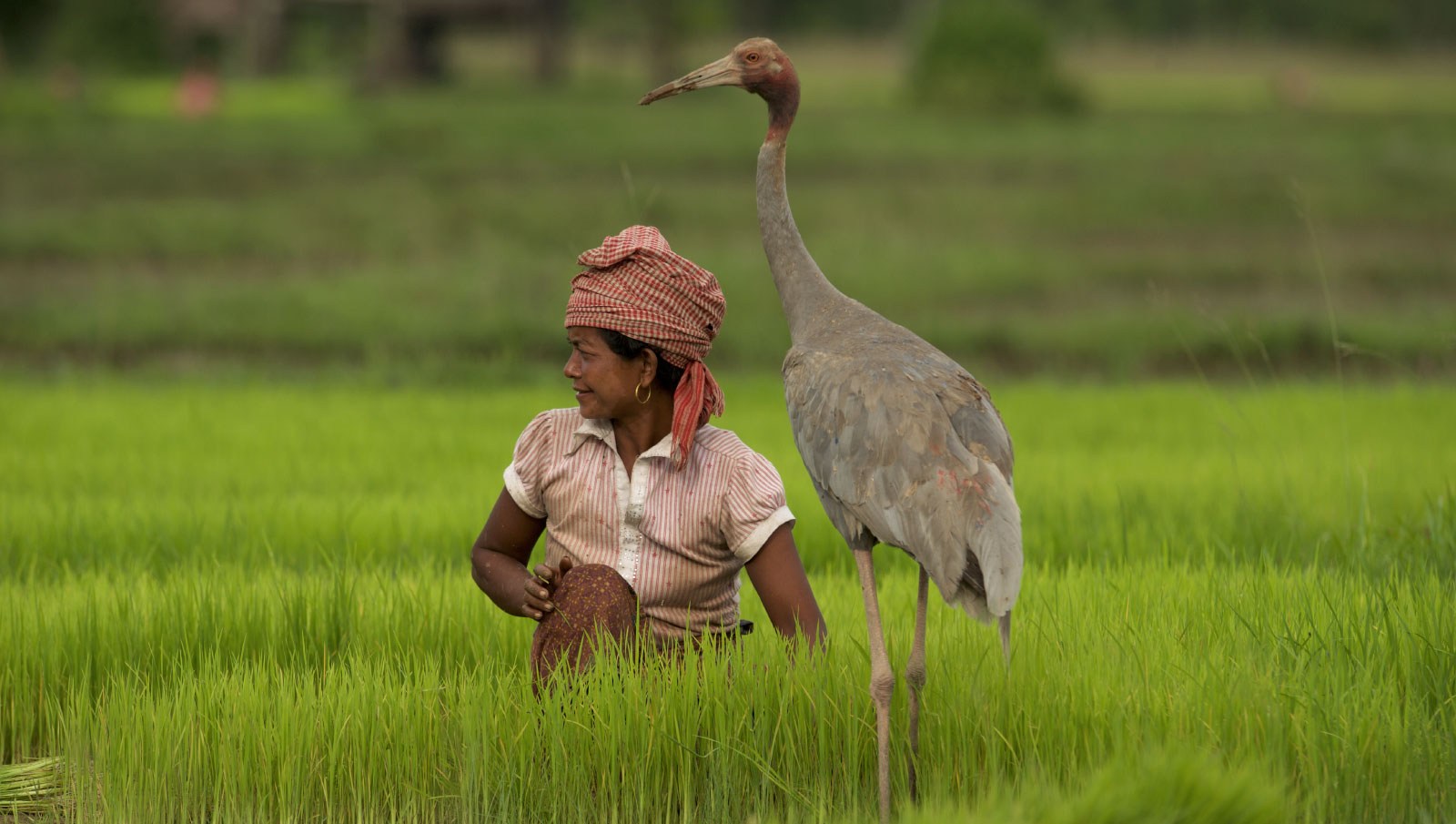
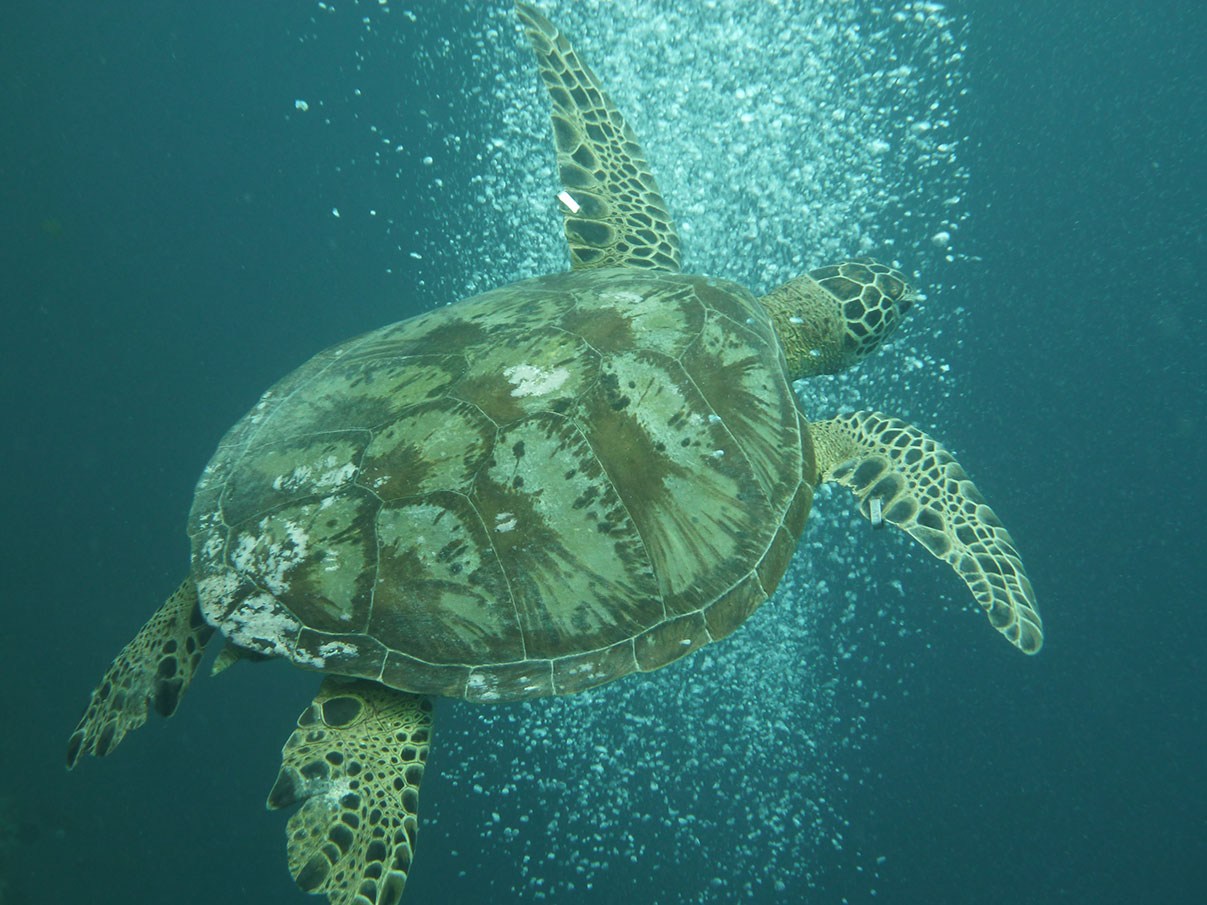
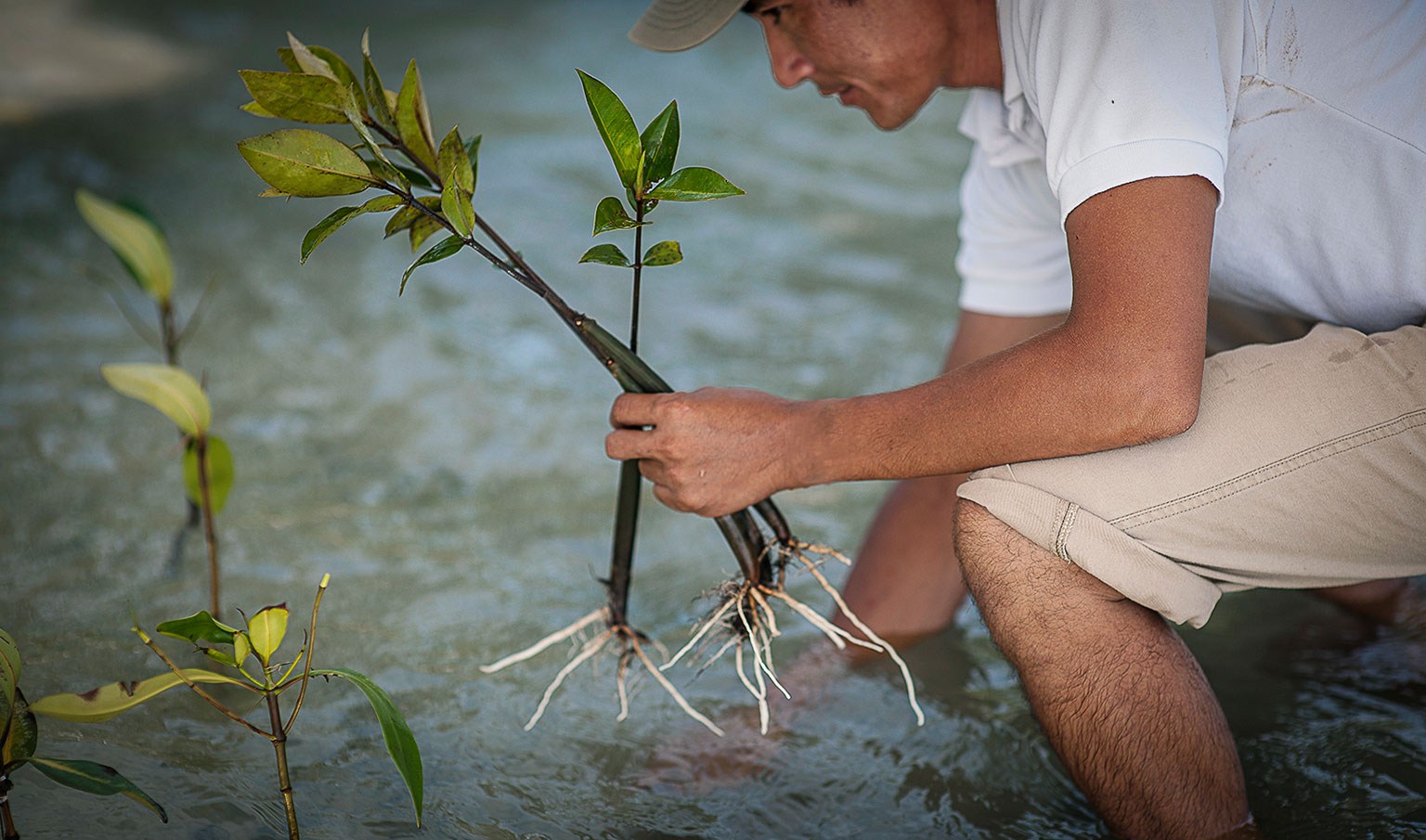
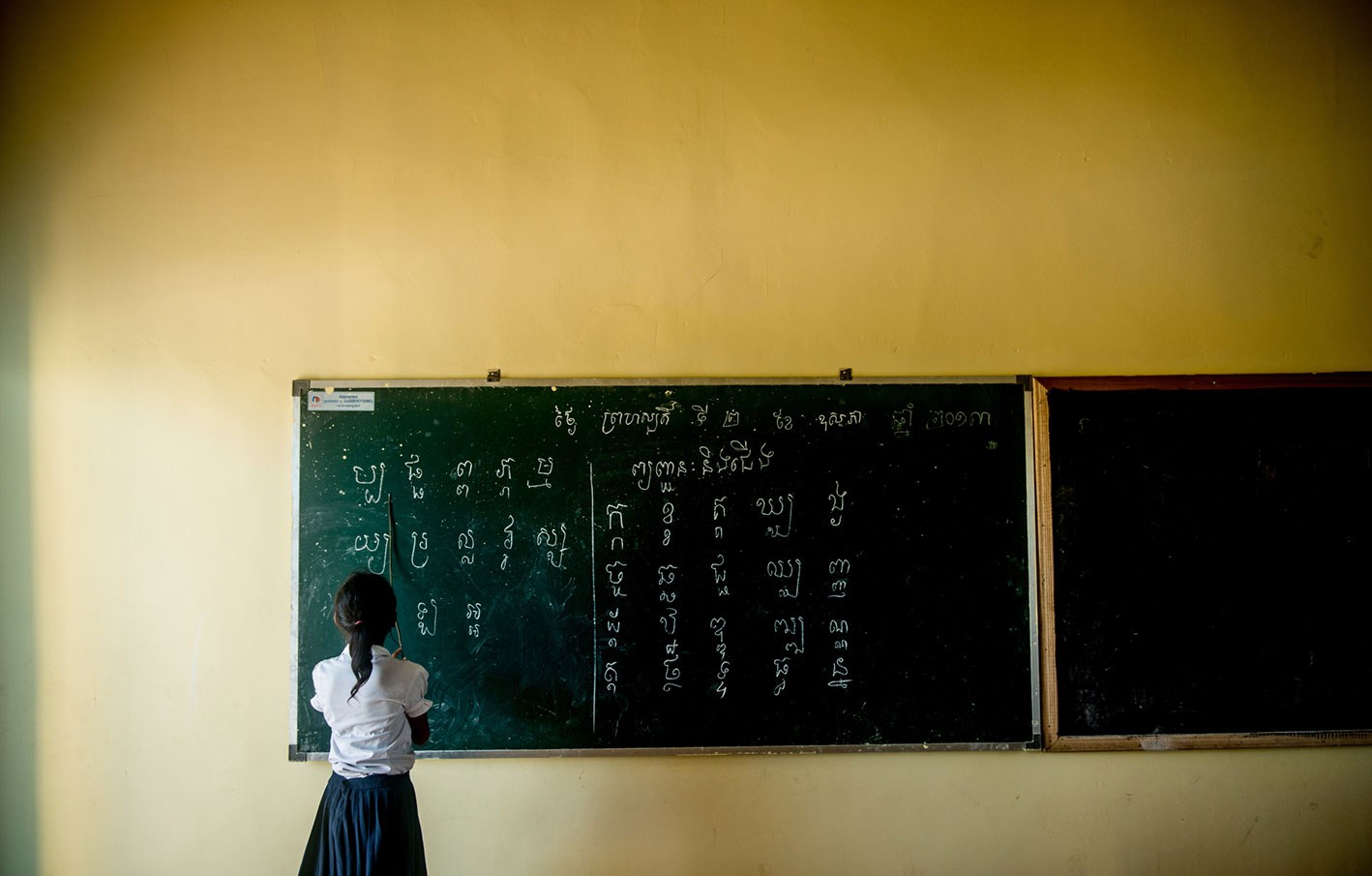
Nightly Rate: Rates start from approximately $890 USD per night, depending on villa type and season.
Website: www.songsaa-privateisland.com
9. Six Senses Laamu, Maldives
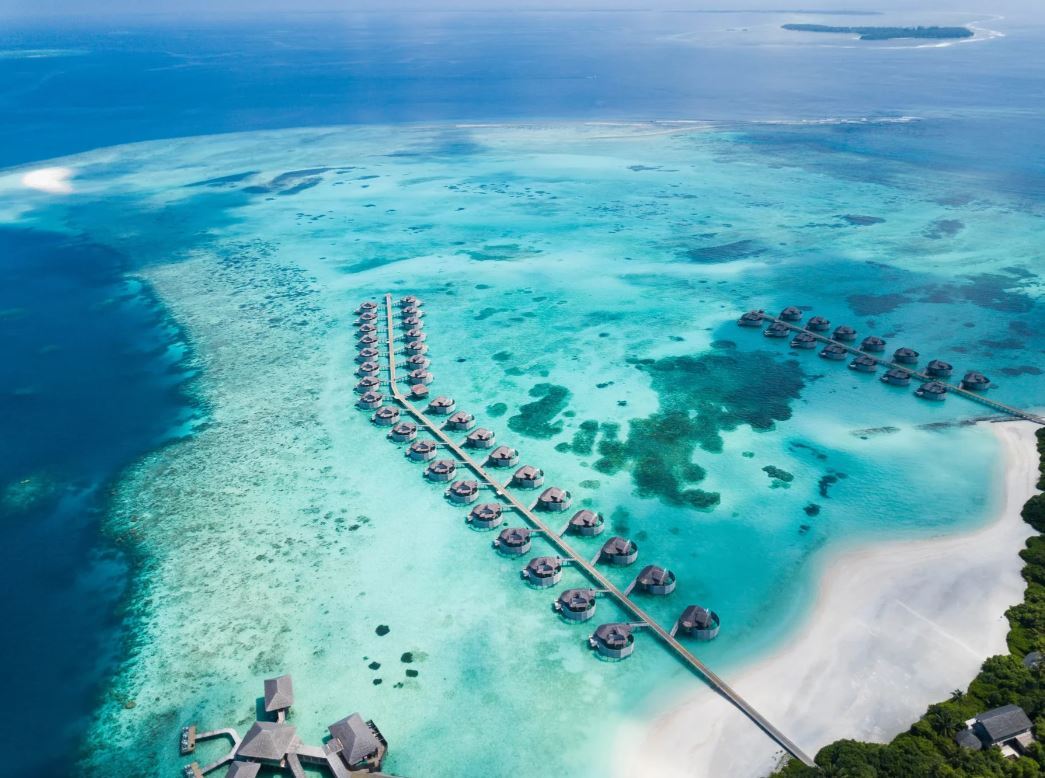
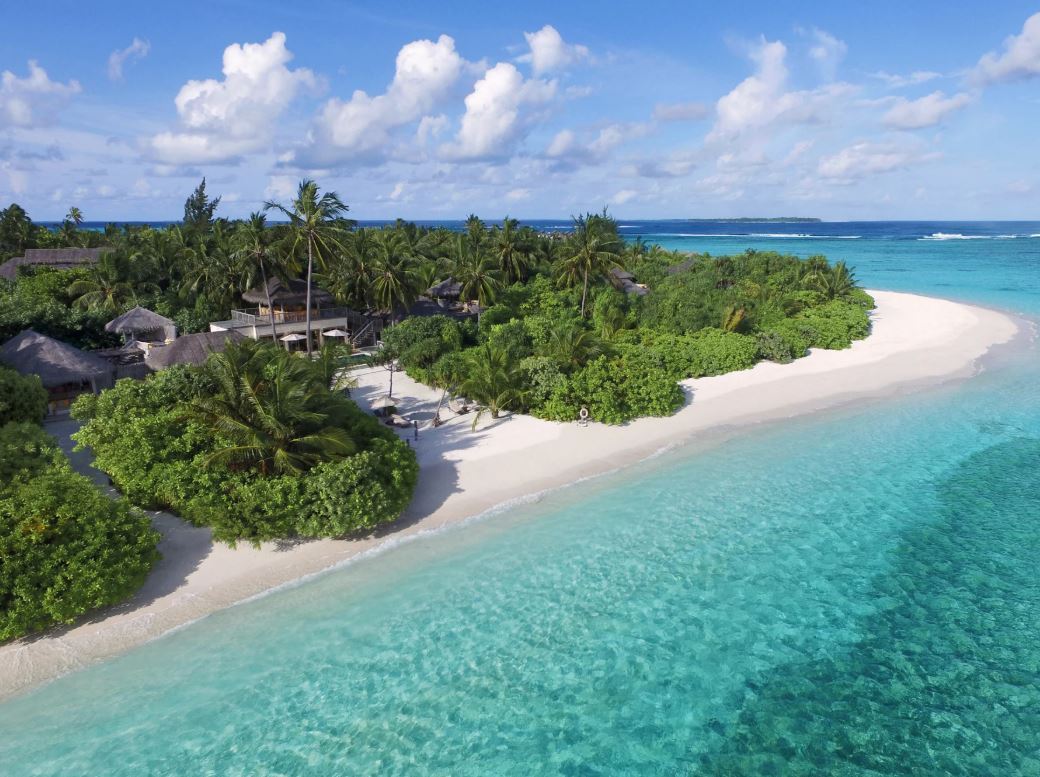
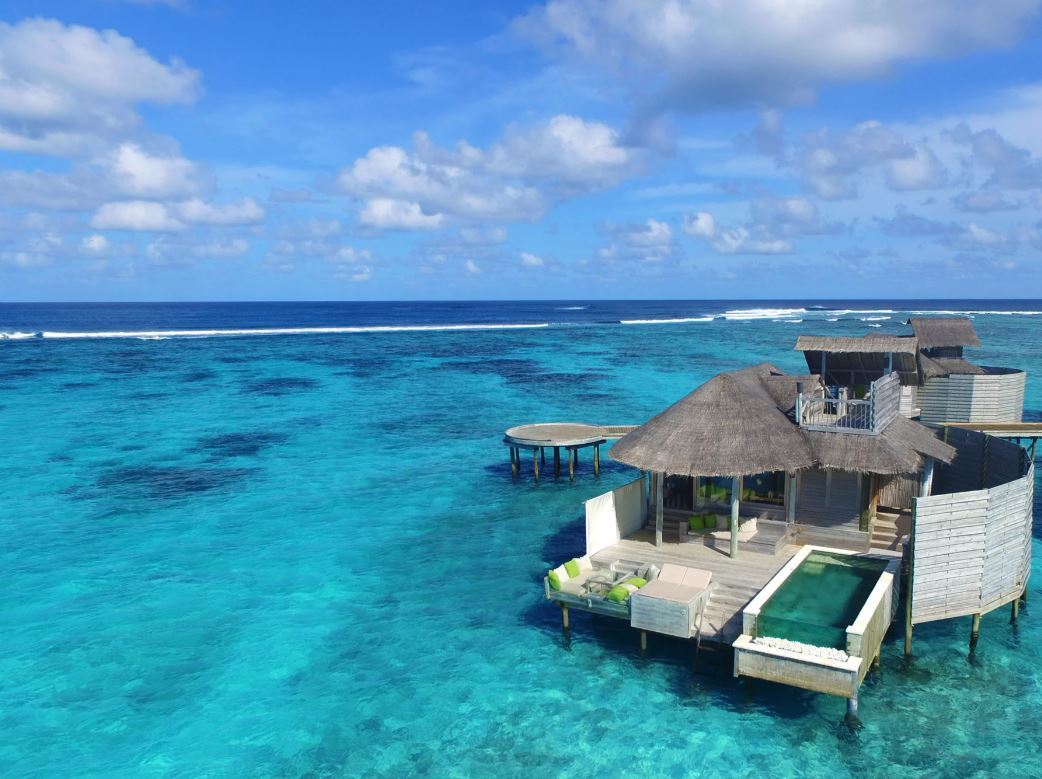
Overview:
Six Senses Laamu is the only resort in the Laamu Atoll, Maldives. It offers a blend of sustainable practices and luxury, focusing on preserving the natural environment .
Location:
Laamu Atoll, Maldives
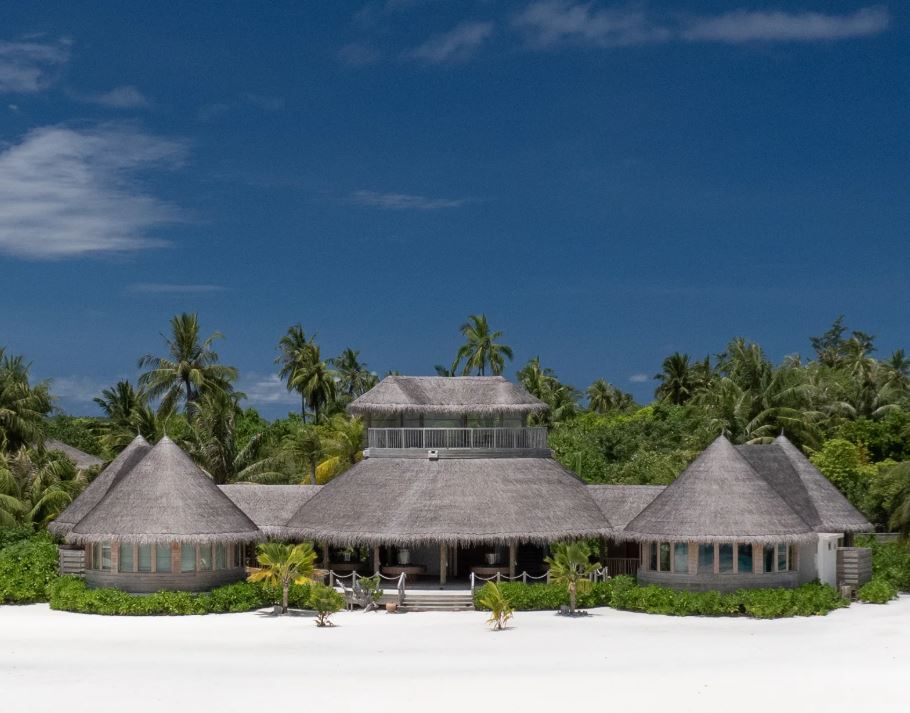
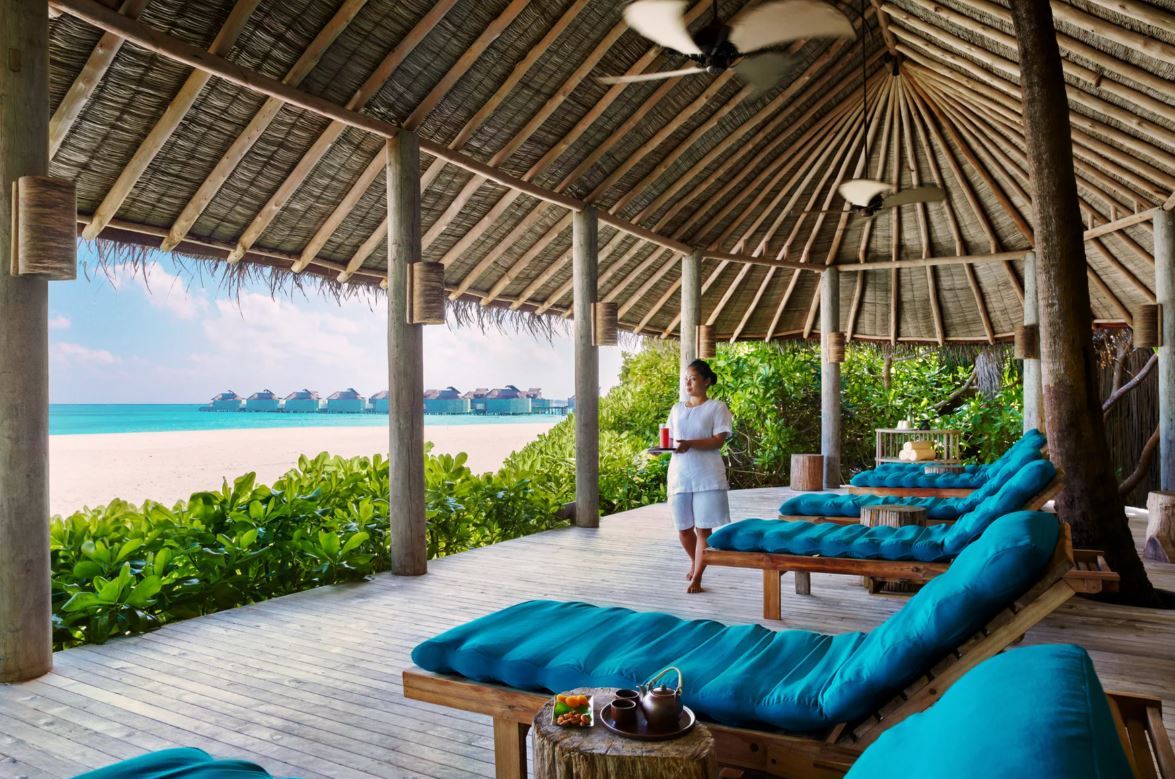
Eco-Features:
-
Villas constructed with sustainable materials
-
Operates an Earth Lab for sustainability education
-
Implements comprehensive waste management and renewable energy systems
Ocean Conservation Initiatives:
-
Hosts the Maldives Underwater Initiative (MUI) for marine research
-
Active coral reef restoration projects
-
Educational programs for guests and local communities on marine conservation
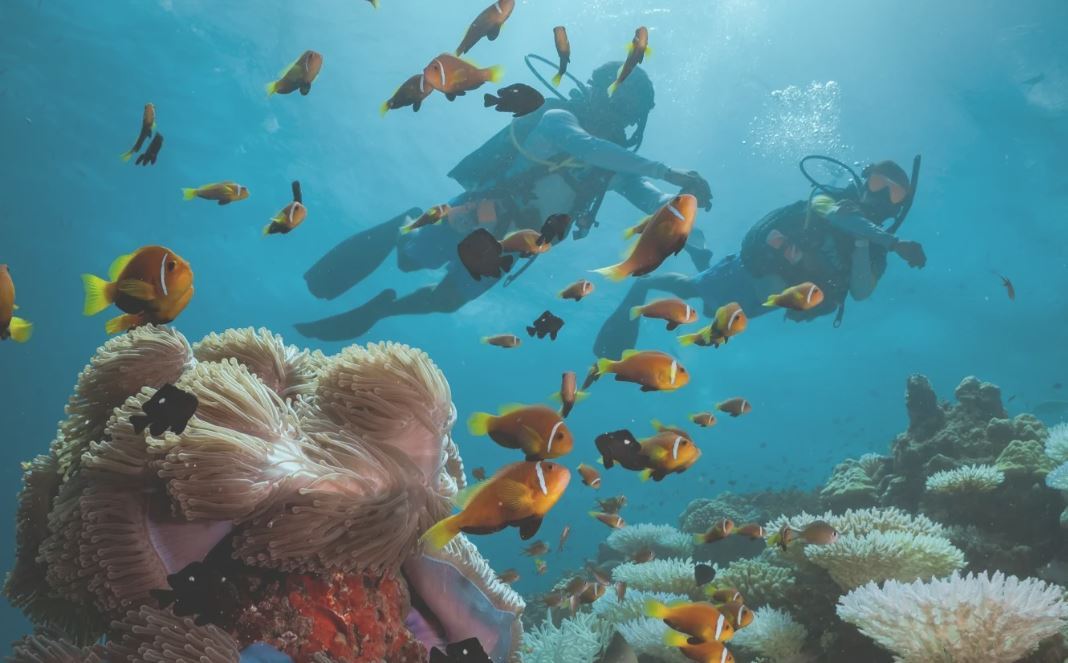
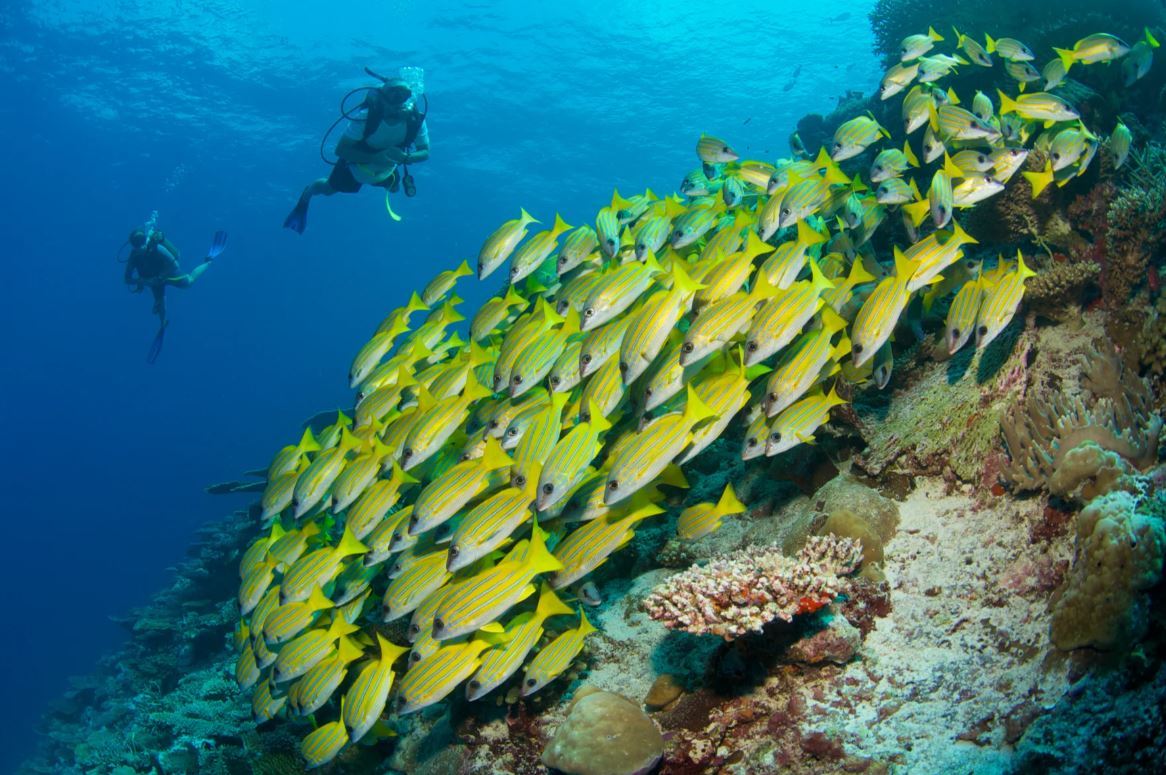
Nightly Rate: Rates vary by villa type and season; please refer to the website for specific pricing.
Website: www.sixsenses.com/en/hotels-resorts/asia-the-pacific/maldives/laamu
Conclusion
The examples shared in this article illustrate a crucial truth: the hospitality industry, when guided by ecological ethics and long-term vision, can be a catalyst for ocean recovery. These pioneering resorts do more than reduce harm—they actively restore coral reefs, protect endangered species, empower coastal communities, and educate global citizens.
As climate risks intensify and consumer awareness grows, integrating marine conservation into the DNA of luxury travel is no longer a novelty—it is a necessity. The success stories from Raja Ampat to the Galápagos prove that economic prosperity and environmental integrity are not mutually exclusive, but deeply intertwined.
If the Blue Economy is to thrive, it will need not only scientists and policymakers—but also hoteliers, designers, and travelers willing to embrace a regenerative model. By choosing to support ocean-positive destinations, we can ensure that tourism becomes a force not of exploitation, but of healing.
Let this serve as both a celebration of what's possible and a call to action: the future of travel is blue.
Featured Posts
Blog Topics
Urban environment & Public spaces
Stay updated with the latest articles and insights from The Landscape Lab. Here, you will find valuable information and engaging content.
Waterfront & Coastal Resilience
Stay updated with the latest articles and insights from The Landscape Lab. Here, you will find valuable information and engaging content.
Captivating Photography
Stay updated with the latest articles and insights from The Landscape Lab. Here, you will find valuable information and engaging content.
Why Read The Landscape Lab Blog?
The way we design and interact with landscapes is more important than ever. As cities expand, coastlines shift, and climate change reshapes our world, the choices we make about land, water, and urban spaces have lasting impacts. The Landscape Lab Blog is here to spark fresh conversations, challenge conventional thinking, and inspire new approaches to sustainable and resilient design.
If you’re a landscape architect, urban planner, environmentalist, or simply someone who cares about how our surroundings shape our lives, this blog offers insights that matter. We explore the intersections between nature and the built environment, diving into real-world examples of cities adapting to rising sea levels, innovative waterfront designs, and the revival of native ecosystems. We look at how landscapes can work with nature rather than against it, ensuring long-term sustainability and biodiversity.
By reading The Landscape Lab, you'll gain a deeper understanding of the evolving field of landscape design—from rewilding initiatives to regenerative urban planning. Whether it’s uncovering the forgotten history of resilient landscapes, analyzing groundbreaking projects, or discussing the future of green infrastructure, this blog provides a space for learning, inspiration, and meaningful dialogue.
Location:
The Landscape Lab
123 Greenway Drive
Garden City
NY 12345
United Kingdom
Contact Number:
Get in Touch:
contact@thelandscapelab.co.uk
© 2025 thelandscapelab.co.uk - Your go-to blog for landscaping insights
